#Boris Havel
Explore tagged Tumblr posts
Text
0° Aquarius Risings
The people listed here are have A-AA Rodden rating.
The source, as always, my beloved Astrodatabank.
Press 'Keep Reading' to view. It has 30 people so I just kept it this way.
ALOJZY ADAMCZYK, Polish resistance fighter
North Node in 1st house (Pisces)
Ascendant square Saturn, 1°
Ascendant trine Chiron, 3°

CONRAD AIKEN, American writer and poet
Ascendant sextile Moon, 2°
Ascendant opposite Mars, 1°
Ascendant quincunx Lilith, 0°
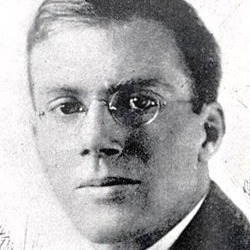
ALEJANDRA BAIGORRIA, Peruvian businesswoman, TV personality, and racing driver
Ascendant opposite Venus, 1°
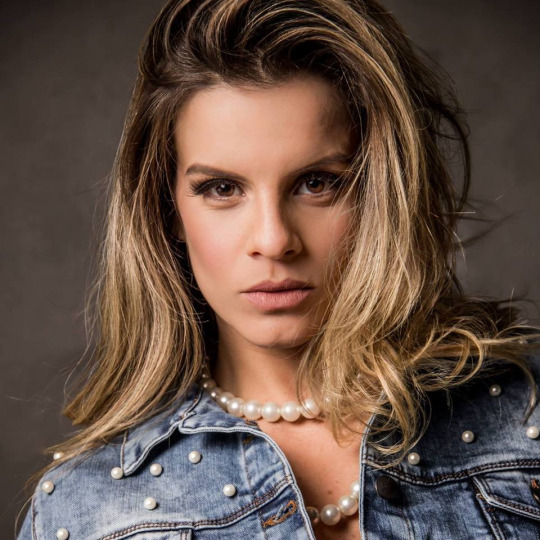
IRELAND BALDWIN, American fashion model
Ascendant square Sun, 0°
Ascendant sextile Mars, 2º
Ascendant conjunct Uranus (12H), 3°
Ascendant sextile Pluto, 1°

MARIO BAVA, Italian filmmaker, "Master of Italian Horror"
Uranus in 1st house
Jupiter in 1st house
North Node in 1st house (Pisces)
Ascendant opposite Neptune, 2°
Ascendant square Lilith, 3°
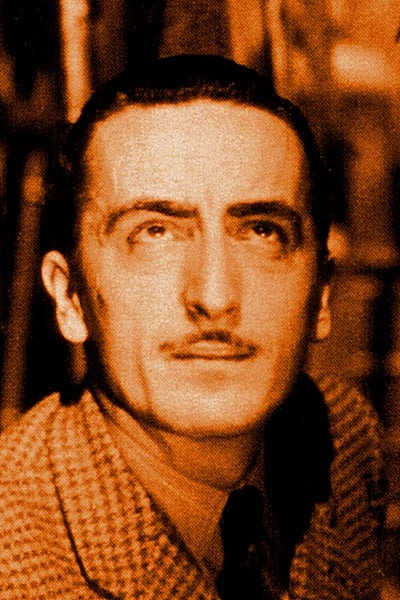
BÉRÉNIC BEJO, French-Argentine actress
Ascendant sextile Moon, 2°
Ascendant square Uranus, 3°
Ascendant square Chiron, 2°
Ascendant square Lilith, 2°

JAIMARIE BJORGE, American actress and stuntwoman
Moon in 1st house

JUDY BLUMBERG, American ice skater
Ascendant sextile Saturn, 3°
Ascendant square Neptune, 2°
Ascendant sextile North Node, 2°
Ascendant conjunct Lilith, 1°

BROOKS BOLLINGER, American football quarterback
Ascendant sextile Mercury, 3°

BORIS III of Bulgaria, Tsar of Bulgaria 1918-1943
Sun conjunct Mercury in 1st house
Venus in 1st house (Pisces)
Ascendant sextile Moon, 3°
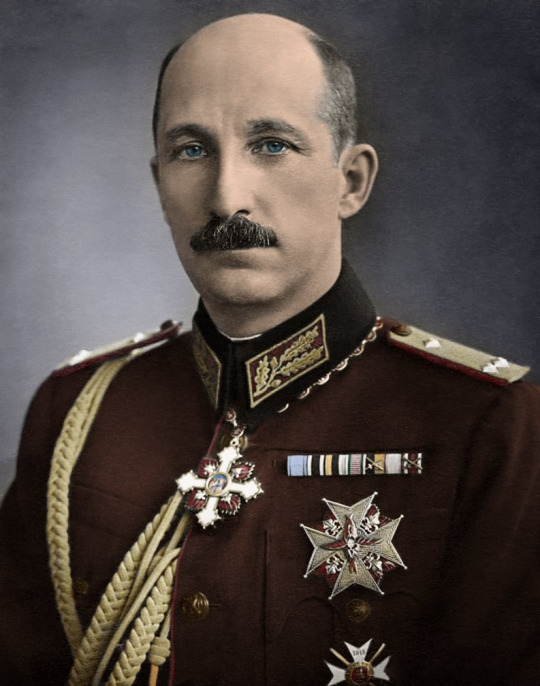
ELMER BORLONGAN, Filipino contemporary figurative expressionism painter
Ascendant sextile Moon, 1°
Ascendant conjunct Venus, 0°
Ascendant opposite Jupiter, 1°
Ascendant sextile Lilith, 1°

BRUNOZOR, Brazilian social media personality
Ascendant conjunct Uranus, 3°
Ascendant trine Mars, 1°
Ascendant sextile Saturn, 1°
Ascendant trine North Node, 3°
Ascendant square Chiron, 0°

JÉRÔME HENRI CARREIN, second-to-last convicted criminal to be executed by guillotine in France
Ascendant opposite Venus, 0°
Ascendant sextile Mars, 0°
Ascendant trine Uranus, 2°
Ascendant opposite Pluto, 3°
Ascendant opposite Chiron, 1°
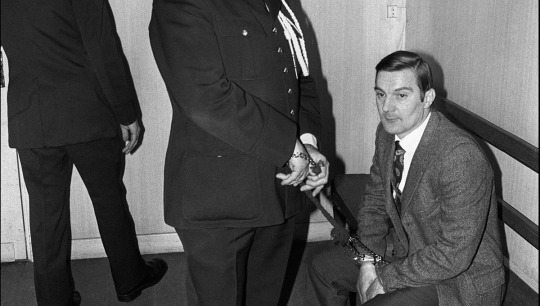
LORD JAMES CLYDE, Scottish High Court Judge
Ascendant opposite Mars, 1°
Ascendant sextile Uranus, 1°
Ascendant sextile Chiron, 1°

CAMERON CROWE, American filmmaker
Ascendant opposite Mercury, 3°
Ascendant square Neptune, 0°

JOSETTE DAYDÉ, French jazz/swing swinger, chansonnière and actress
Venus in 1st house
Uranus in 1st house (Pisces)

JEAN DEMANNEZ, Belgian politician
Mercury in 1st house
Venus in 1st house
Sun in 1st house
Mars in 1st house (Pisces)
Ascendant square North Node, 1°
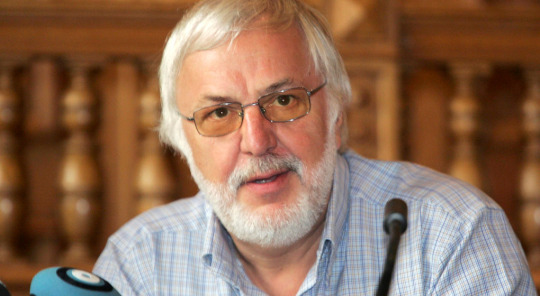
KIRK DOUGLAS, American actor and filmmaker
Uranus in 1st house
Ascendant opposite Saturn, 1°
Ascendant opposite Lilith, 3°

HENRY EYRING, Mexican theoretical chemist
Venus in 1st house
Sun in 1st house (Pisces)
Ascendant sextile North Node, 3°
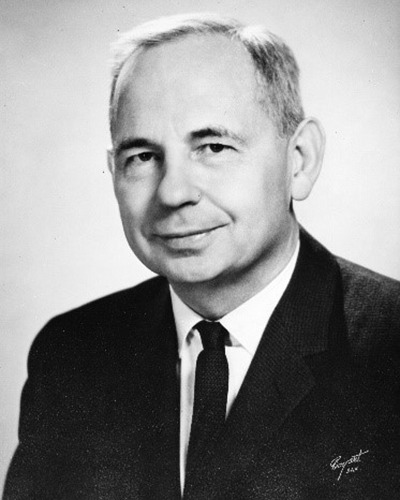
MARGAUX FARRELL, American-born Olympic swimmer
North Node in 1st house
Ascendant trine Moon, 1°
Ascendant opposite Jupiter, 1°
Ascendant sextile Lilith, 3°

GABRIELE FERZETTI, Italian actor
Venus in 1st house (Pisces)

VÁCLAV HAVEL, Last president of Czechoslovakia
Saturn in 1st house (Pisces)
Ascendant trine Mercury, 3°
Ascendant opposite Pluto, 2°
Ascendant square Lilith, 0°
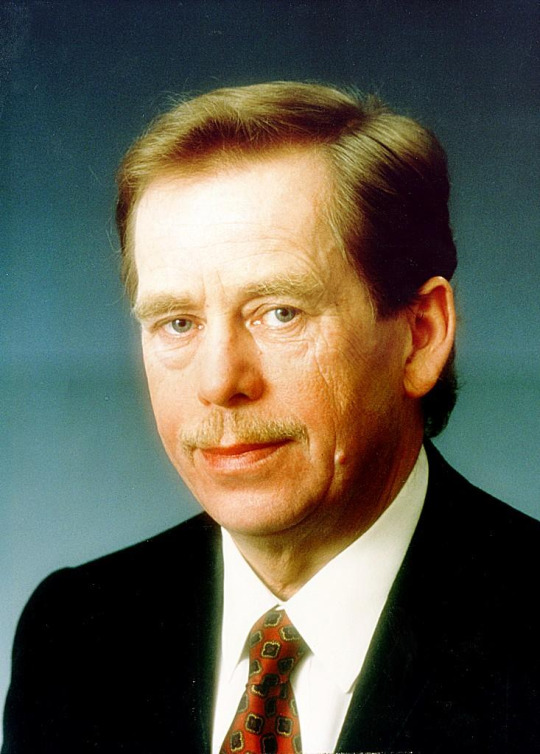
CHRISTOF INNERHOFER, Italian alpine ski racer
Venus in 1st house
Mars in 1st house
Ascendant square Pluto, 3°

OVI KOBIR, American politician and former reality TV contestant
Ascendant sextile Mercury, 1°
Ascendant sextile Saturn, 0°
Ascendant conjunct Uranus, 0°
Ascendant sextile Pluto, 2°

RUSH LIMBAUGH, American conversative political commentator
Venus in 1st house
Mars in 1st house
Jupiter in 1st house (Pisces)
Ascendant trine Saturn, 1°

FLORENT MANAUDOU, French competitive swimmer
Ascendant conjunct North Node, 1°
Ascendant sextile Mercury, 1°

MICHAL MILOWICZ, Polish singer and actor
North Node in 1st house (Pisces)
Ascendant sextile Neptune, 2°

PAT NIXON, American First Lady
Ascendant conjunct Uranus, 2°
Moon conjunct Venus in 1st house
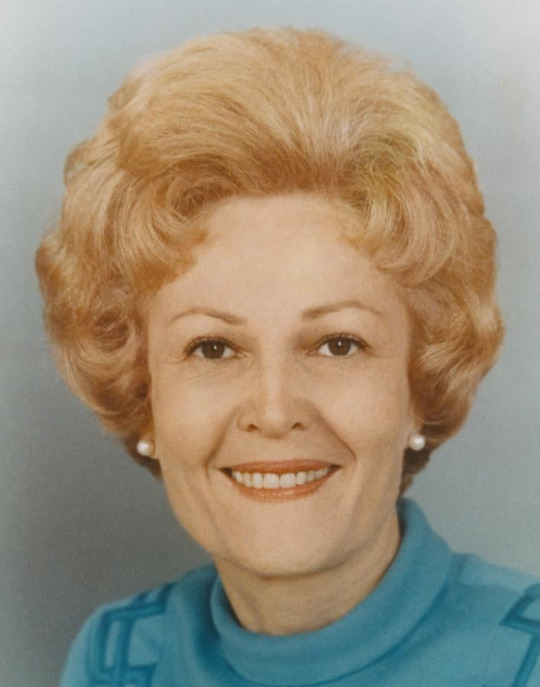
STÉPHANE PLAZA, French television personality
North Node in 1st house (Pisces)
Ascendant sextile Neptune, 2°

AMY POEHLER, American comedian
Mars conjunct North Node in 1st house
Ascendant trine Venus, 2°
Ascendant sextile Jupiter, 0°
Ascendant sextile Neptune, 0°
Ascendant trine Pluto, 1°

#astrology#astro observations#aquarius#aquarius rising#aquarius ASC#aquarius ascendant#0° aquarius rising#aquarius rising appearance#north node in 1st house#ascendant square saturn#ascendant trine chiron#ascendant sextile moon#ascendant opposite mars#ascendant quincunx lilith#ascendant opposite venus#ascendant square sun#ascendant sextile mars#ascendant conjunct uranus#ascendant sextile pluto#uranus in 1st house#jupiter in 1st house appearance#jupiter in 1st house#venus in 1st house#mercury in 1st house#sun in 1st house#saturn in 1st house#mars in 1st house#mars conjunct north node
55 notes
·
View notes
Text
Drawing factory, dessins à tous les étages
Drawing factory, dessins à tous les étages
PAR STEPHANIE DULOUT Des couloirs en enfilade rayonnant sur quatre étages tapissés de rouge, des portes numérotées s’entrouvrant sur trente-deux chambres avec salle de bain transformées en autant d’ateliers mis à la disposition de trente-deux jeunes artistes triés sur le volet, mettant le dessin au centre de leur pratique artistique,: çà bourdonne, ça crayonne et ça griffonne au 11, avenue…

View On WordPress
#boris kurdi#clovis retif#drawing factory#françois reau#gabriel folli#marie havel#martinet texereau#raphaelle peria#vanina langer
0 notes
Photo

Simon Schama: art versus the tyrants
From Václav Havel to Ai Weiwei, writers and artists have led the way in the fight for human rights
* * * *
Simon Schama: art versus the tyrants
From Václav Havel to Ai Weiwei, writers and artists have led the way in the fight for human rights
* * * *
I know a poem can’t stop a tank. But the reverse is also true. As I’m writing this, the streets of China and Iran have been alive with infuriated, chanting crowds, so tired of being institutionally deceived and robbed of any personal agency or independence of mind that they are prepared to risk arrest and imprisonment rather than be silenced by regimes demanding obedience to lies. “Culture wars” ought not to be confused with the laborious woke-baiting that has become the default position of populist media in the west. The women’s revolt in Iran is a culture war; Ukrainian resistance to the militarised fantasies of Russian imperialism is at root also a culture war, a refusal to accept Vladimir Putin’s contention that their nation’s language and history are a delusion. It is not accidental that one of the most powerful weapons that the actor-writer President Volodymyr Zelenskyy leading Ukraine has at his command is the gift of candid human communication.
Growing up in the 1950s, my baby-boomer generation assumed that the screamers of hate, the destroyers of culture, had gone with the war. “Well, boys,” our school history teacher confidently proclaimed around 1958, “we don’t really know what the rest of the 20th century has in store for us, but you can at least be sure of this: religious oppression and rabid nationalism are things of the past.” When, in that same year, Boris Pasternak won the Nobel Prize for Dr Zhivago, we thought that even the adamantine rock face of Soviet authoritarianism could somehow be cracked open just far enough for truth, memory and a faint breeze of freedom to be admitted. Even if Pasternak was demonised as an enemy of the Soviet people and forced to decline the prize, we believed that, sooner or later, light would return, as for a while, 30 years later, it did.
Becoming a historian was, we thought, a vote of confidence in the victory of the Enlightenment. When the civil rights movement in the US flowered in the 1960s, we bought into Martin Luther King Jr’s conviction that “the arc of the moral universe is long, but it bends towards justice”. Often enough, though, it snaps. Four days after he spoke those words in 1968 at the National Cathedral, Washington DC, he was murdered in Memphis.
My new BBC2 television series is the fruit of sombre, late-life reflection that the History of Now was prefigured in the History of Then; that what we had imagined to be things of the past have returned to shadow the present and future. Shrieking, whether online or on platforms, is back; hate is sexy and stalks the world as “disruption”. So those old battles need to be refought, and with the help of the unlikely weapons that once opened eyes and changed minds: the soft power of culture — poetically charged words, images, music, all of which can, in some circumstances, exert a force beyond the workaday stuff of politics. Culture can do this because it can connect with human habits, needs and intuitions in ways that expose the inhuman hollowness of official propaganda.
...
What Václav Havel, in his most original and penetrating text, called “the power of the powerless” is capable of putting despotisms on the back foot, simply by being in sync with the simplest and most natural human instincts. Authoritarians can mobilise their heavy artillery of terror, torture, imprisonment and persecution; but in the end, Havel argued, they are not that well equipped to fight the asymmetric battle between lies and truth. Havel believed that the vast majority of people are not content to be forever walled within a prison of falsehood, where the price of material security and domestic safety is the unconditional surrender of personal freedom.
For a while — perhaps many decades — punitive disincentives against disruptive truth-speaking can prevail, especially when reinforced by visceral appeals to tribal loyalty: the demonisation of hate figures (such as George Soros) said to personify foreign manipulation. In the end what Havel calls the “trapped air”— a natural human wish to be able to speak one’s mind in a café, dress as one wishes (including visible hair), listen to unauthorised music, all the innumerable small acts of social defiance — can build into a rising tide of disgust. When Czech police infiltrated the underground concerts of the Plastic People of the Universe in the 1970s — concerned, as their saxophonist Vratislav Brabanec remembered, that the music was some sort of “black illness” that would grow and generate disaffection — they only guaranteed more risible contempt. But there was a price. In 1976 the band was jailed for months, a wound Brabanec says you carry for ever. Why the wound? “Because I was innocent,” he says over his morning beer. “I was jailed for playing the saxophone.”
[MORE]
10 notes
·
View notes
Quote
A proposito del centenario del Pci - Nella celebrazione di storici centenari, qui si suggerisce una molto sommaria integrazione per così dire bibliografica (di una bibliografia troppo oscurata o addirittura ignorata) che potrebbe almeno in parte simboleggiare un blando antidoto a una lettura troppo autoapologetica sparsa a piene mani a cento anni da Livorno ‘21. Arcipelago Gulag di Aleksandr Solgenitsin, I racconti della Kolyma di Varlam Salamov, Gulag di Anne Applebaum, Koba il terribile di Martin Amis, Il Grande Terrore di Robert Conquest, Il secolo delle idee assassine di Robert Conquest, Le origini del totalitarismo di Hannah Arendt, La società aperta e i suoi nemici di Karl Raimund Popper, Prigioniera di Stalin e Hitler di Margarete Buber-Neumann, Il corsivo è mio di Nina Berberova, Ritorno dall’Urss di André Gide, Tutto scorre di Vasilij Grossman, Il passato di un’illusione di François Furet, L’epoca e i lupi di Nadezda Mandel’stam, tutte le opere di Osip Mandel’stam, tutte le opere di Marina Cvetaeva, tutte le opere di Anna Achmatova, tutte le opere di George Orwell, L’uomo in rivolta di Albert Camus, La mente prigioniera di Czeslaw Milosz, Un mondo a parte di Gustaw Herling, Il dottor Zivago di Boris Pasternak, Commissariato degli archivi di Alain Jaubert, Buio a mezzogiorno di Arthur Koestler, Il dio che è fallito di Koestler, Silone, Wright, Gide, Spender, Fisher, Novecento il secolo del male di Alain Besançon, I fantasmi di Mosca di Enzo Bettiza, Il regime bolscevico di Richard Pipes, Togliatti 1937 di Renato Mieli, Memorie di un rivoluzionario di Victor Serge, Autobiografia 1945-1963 di Emmanuel Le Roy Ladurie, Nemici del popolo di Nicolas Werth, L’utopia al potere di Mihail Geller e Aleksandr Nekric, Stalin di Boris Souvarine, La scheggia di Vladimir Zazubrin, Viaggio nella vertigine di Evgenia Semionovna Ginzburg, Lettere a Olga di Vaclav Havel, Cime abissali di Aleksandr Zinoviev, tutte le opere di Milan Kundera, Il tempo della malafede di Nicola Chiaromonte, la collezione completa della rivista «Tempo Presente», Intervista politico-filosofica a Lucio Colletti, Atlante.
Un lievissimo Pigi Battista stila la condanna a morte perenne per crimini contro l’Umanità del comunismo e del PCI, sul CdS via https://www.dagospia.com/rubrica-2/media_e_tv/versione-mughini-ndash-quot-controbibliografia-quot-259067.htm
è la lista di libri uno più bello dell’altro che raccontano “il secolo delle idee assassine”, ossia le due idee, “il comunismo” e “il nazismo”, da cui sono venuti i massacri più spaventosi nella storia dell’uomo. Lo dico in modo ancora più brutale: quanti nel tempo presente hanno chiara l’idea che “i crimini contro l’umanità” nel Novecento sono stati due, l’uno criminale esattamente quanto l’altro, il comunismo reale e il nazismo reale, e che quelle due parole vanno pronunciate entrambe con ripugnanza e disprezzo? (G.Mughini).
14 notes
·
View notes
Link
13:50
LA VERSIONE DI MUGHINI – LA "CONTROBIBLIOGRAFIA" SUL CENTENARIO DEL PCI STILATA DA “PIGI” BATTISTA IRRADIA VERITA’. QUANTI NEL TEMPO PRESENTE HANNO CHIARA L’IDEA CHE “I CRIMINI CONTRO L’UMANITÀ” NEL NOVECENTO SONO STATI DUE, IL COMUNISMO REALE E IL NAZISMO REALE, E CHE QUELLE DUE PAROLE VANNO PRONUNCIATE ENTRAMBE CON RIPUGNANZA E DISPREZZO?" – LA LISTA DI LIBRI"UNO PIU' BELLO DELL'ALTRO" SUL CENTENARIO DEL PCI, LE DUE MILIONI DI DONNE STUPRATE DAI SOLDATI RUSSI IN GERMANIA E LA CENSURA DE “L’EUROPEO”
-
Giampiero Mughini per Dagospia
Caro Dago, oggi alla pagina 23 del “Corriere della sera” c’è un colonnino di piombo che irradia verità. E’ la “Controbibliografia sul centenario del Pci” stilata dal mio vecchio compare Pigi Battista, uno che se ne intende.
In quella lista c’è Solzgenitzsin, lo storico Robert Conquest, l’ex anarchico di sinistra Victor Serge, l’ex fondatore del Pci Angelo Tasca, Nina Berberova, il grande François Furet, Gide appena tornato dall’Urss dove Stalin per tenerselo buono lo aveva fatto circondare da “compagni” aitanti, il meraviglioso piccolo romanzo “La scheggia” dello scrittore russo Vladimir Zazubrin, il libro in cui Renato Mieli (padre di Paolo) racconta che cosa esattamente fece e approvò il Togliatti del 1937. E cento altri.
A proposito del centenario del Pci (episodio sul quale ovviamente non c’è più il minimo dubbio che Filippo Turati avesse ragione, e Antonio Gramsci torto marcio) è la lista di libri uno più bello dell’altro che raccontano “il secolo delle idee assassine”, ossia le due idee, “il comunismo” e “il nazismo”, da cui sono venuti i massacri più spaventosi nella storia dell’uomo. I gulag nazi e i loro 6 milioni di ebrei assassinati? Spaventoso, certo.
E che dire invece degli oltre 5 milioni di ucraini assassinati da Stalin nei primi anni Trenta, al tempo delle “collettivizzazioni” forzate? Lo dico in modo ancora più brutale: quanti nel tempo presente hanno chiara l’idea che “i crimini contro l’umanità” nel Novecento sono stati due, l’uno criminale esattamente quanto l’altro, il comunismo reale e il nazismo reale, e che quelle due parole vanno pronunciate entrambe con ripugnanza e disprezzo? (Due giorni fa sono stato alla Procura della Repubblica di Roma dove mi aspettava una querela che mi ha fatto un tipetto che si autodefinisce leader dei “Centri di appoggio alla Resistenza per il Comunismo”. Nel 2021.)
Naturalmente il 95 per cento dei libri annoverati da Pigi li ho letti. Più che letti, annotati, compulsati, amati, divorati. Ecco, qui è il punto. Quali di quei libri sono entrati non dico della top ten dei libri più venduti (una graduatoria in sé indecente), ma sono stati al centro dell’attenzione di una qualche generazione intellettuale, ad esempio la mia?
Mai da nessuno ho sentito pronunciare il nome di Victor Serge. Chi in Italia conosce lo storico ungherese François Fejto, quello che prendeva a schiaffi culturali il comunista Gyorgy Lukàcs e di cui ricordo nitidamente i momenti in cui lo stavo intervistando su una terrazza parigina e lui era un fiume di intelligenza?
Quanto al genero di Benedetto Croce, il polacco Gustav Herling, uno che nel secondo dopoguerra era fuggito dalla Polonia stalinista ed era venuto a vivere in Italia, Laterza ci provò a pubblicare un suo libro che era un capolavoro ma si accorse che non c’era pubblico per quel libro e lo lasciò marcire negli scantinati.
Così, esattamente così sono andate le cose sino all’altro ieri nell’editoria e nel consumo culturale degli italiani. Quando ero all’ “Europeo” scrissi una sorta di recensione a un libro che raccontava a puntino che cosa avevano fatto, in termini di stupri e di atrocità varie ai danni dei civili, i soldati russi penetrati vittoriosi in Germania. Due milioni di donne stuprate. Il caposervizio cultura dell’ “Europeo” - ho detto “L’ Europeo”, non “Rinascita” - non lo pubblicò mai. Non per eleganza ma per disprezzo intellettuale non ne farò il nome.
CONTROBIBLIOGRAFIA SUL CENTENARIO DEL PCI
Pierluigi Battista per il Corriere della Sera
Nella celebrazione di storici centenari, qui si suggerisce una molto sommaria integrazione per così dire bibliografica (di una bibliografia troppo oscurata o addirittura ignorata) che potrebbe almeno in parte simboleggiare un blando antidoto a una lettura troppo autoapologetica sparsa a piene mani a cento anni da Livorno ‘21.
Arcipelago Gulag di Aleksandr Solgenitsin, I racconti della Kolyma di Varlam Salamov, Gulag di Anne Applebaum, Koba il terribile di Martin Amis, Il Grande Terrore di Robert Conquest, Il secolo delle idee assassine di Robert Conquest, Le origini del totalitarismo di Hannah Arendt, La società aperta e i suoi nemici di Karl Raimund Popper, Prigioniera di Stalin e Hitler di Margarete Buber-Neumann, Il corsivo è mio di Nina Berberova, Ritorno dall’Urss di André Gide, Tutto scorre di Vasilij Grossman, Il passato di un’illusione di François Furet,
L’epoca e i lupi di Nadezda Mandel’stam, tutte le opere di Osip Mandel’stam, tutte le opere di Marina Cvetaeva, tutte le opere di Anna Achmatova, tutte le opere di George Orwell, L’uomo in rivolta di Albert Camus, La mente prigioniera di Czeslaw Milosz, Un mondo a parte di Gustaw Herling, Il dottor Zivago di Boris Pasternak, Commissariato degli archivi di Alain Jaubert, Buio a mezzogiorno di Arthur Koestler, Il dio che è fallito di Koestler, Silone, Wright, Gide, Spender, Fisher, Novecento il secolo del male di Alain Besançon, I fantasmi di Mosca di Enzo Bettiza, Il regime bolscevico di Richard Pipes, Togliatti 1937 di Renato Mieli,
Memorie di un rivoluzionario di Victor Serge, Autobiografia 1945-1963 di Emmanuel Le Roy Ladurie, Nemici del popolo di Nicolas Werth, L’utopia al potere di Mihail Geller e Aleksandr Nekric, Stalin di Boris Souvarine, La scheggia di Vladimir Zazubrin, Viaggio nella vertigine di Evgenia Semionovna Ginzburg, Lettere a Olga di Vaclav Havel, Cime abissali di Aleksandr Zinoviev, tutte le opere di Milan Kundera, Il tempo della malafede di Nicola Chiaromonte, la collezione completa della rivista «Tempo Presente», Intervista politico-filosofica a Lucio Colletti, Atlante
ideologico di Alberto Ronchey, Storia delle democrazie popolari di François Fejto, La nuova classe di Milovan Gilas, Due anni di alleanza germano-sovietica di Angelo Tasca. Tutte le opere di Filippo Turati. Buon centenario e buona lettura.
0 notes
Text
You Live In A Zoo
Ken was riding alone in the elevator, holding a large black forest cake when he sneezed. He aimed his face away from the cake, but the volume of snot and spit oozing down the elevator’s wood-paneling suggested the cake had not escaped the sneeze’s blast radius. Well, Ken thought. Maybe the cake deserves it for preventing my hands from taking one for the team. So it was unsurprising to turn back and see the white-piped letters reading HAPPY BIRTHDAY JESSICA glistening with effluvia, but it was still dismaying. Ken would have loved to blame the person who insisted that cake boxes, with their thin cardboard and non-biodegradable plastic skylights, were preposterously wasteful, but that ever so environmentally ethical person was the same one who just exposed the cake to his own inner environment. He tried blowing the cake clean, which sent a flagella of mucus he hadn’t realized was dangling from his nose lashing across both Ps, just as the elevator stopped on his in-laws’ floor.
He stepped out and placed the slimy cake on the hallway carpet. Sounds of merriment streamed from the cracked door of his wife’s childhood home. Sounds of merriment and his father-in-law’s favorite record, Extensions by the Manhattan Transfer. That damn record was going to play on repeat all night. Ken took a tissue from his pocket and poised a corner of it over the cake, hoping to absorb his nose’s unwelcome contribution without disturbing the calligraphy. He caught one substantial gob that way, but a few streaks still glared up at him. Using a different corner of the tissue, he swept these toward the nearest cherries where they could just blend right in.
When the most damning of the evidence was cleared, Ken stuffed the tissue into his back pocket and carried the cake the rest of the way to his mother-in-law’s 70th birthday party. Jessica and Boris’s apartment had five bedrooms and four and a half bathrooms, all centered around a dining room so large, Ken always expected Irish wolfhounds to come running in at dinner time, even though the building was pet-free. Ken was nearly sure he would have hated the art they slapped all over their infinite wallspace even if his in-laws’ rent wasn’t lower than what he and Caroline were paying for a one-bedroom 10 blocks away. But maybe he did feel more brutally assaulted by that economic outrage than he did by the enlarged ads for a French liqueur, the brown, crumbling opera announcements, the braille transcriptions of rap lyrics and poetry by Havel, the portraits of all six members of their immediate family, all those ornate frame corners poking from the mint green walls like dungeon spikes.
“Happy Birthday!” he said loudly enough, he hoped, for his mother-in-law to hear him anywhere in the cavernous apartment. He turned left, ducking under copper whisks and ladles hanging from the kitchen doorway to hand the snot-smeared cake off to his brother-in-law Gene, who ruled the kitchen with a despotism his cooking did not merit. Gene took it with one hand, without looking up from his phone. Caroline was pinned to the living room sofa by two of their nephews. Ken stood at the edge of the room, giving the entire party one more chance to herald his arrival, and maybe give him subtle guidance on who to kiss first, his wife, the birthday girl or scotch. Just in case any of Rebecca’s guests noticed he was there, he imagined them judging him most harshly if he greeted anyone before his wife so he wended his way past Caroline’s siblings and parents’ friends to the skirmish on the couch.
“Hi Uncle Ken!” his nephew Elijah said. “Can I tickle your armpits?”
Ken knew permission didn’t matter so after glancing disgustedly at the cluster of paintings, charcoals and lithographs, united in their celebration of 19th Century Japanese agriculture, he stiff-armed Elijah and leant over to kiss Caroline. He wanted to be able to confide in her about the splash he’d made on her mother’s cake, to have it be their dirty little secret, which made him think of Betsy, a girl he’d known years before getting married who, one winter, dared him to stick his tongue up her nostril, which he did. And while getting his tongue poked by her jagged, salty boogers wasn’t much of an erotic thrill, goddamn it was intimate! But Caroline’s devotion to her mother was too slavish to allow her to conspire, even mildly, against her so, with Elijah swiping away at his underarm and kicking at his shin to get closer, Ken just smiled and told her she looked nice, wondering why breathing in the chopped herring on her breath didn’t feel as intimate as Betsy’s boogers.
Elijah reached a few finger tips to Ken’s armpit. Ken clamped his arm down, trapping Elijah’s wriggling fingers against his ribcage. Ken smirked and said, “Still too thin to win, boy.”
“Uh, Ken?” Gene said, swatting his own torso with a spatula right where Joan Jett’s eyes squinted from his dark denim Meow Mix apron. “May I see you in the kitchen?”
Everyone at the party intoned her own version of, “Uh oh, what’d you do?”
Ken assured Caroline that everything was fine and dragged Elijah toward the kitchen ready to deny everything. Absolutely everything. Just before the utensil stalactites, Ken raised his arm and Elijah ran back to the sofa, stopping briefly to try crying but abandoning the project when no tears sprang forth. In the kitchen, Gene gave Joan Jett a break and pointed his spatula at a Royal Copenhagen gravy boat on a shelf he couldn’t reach.
“Gene,” Ken said.
“Yes, Ken?”
“You know I’m not the tallest one here. I’m not even your tallest family member.”
“Darling,” Gene’s father Boris said, poking a rare nude spot on a wall repeatedly. “I’m hungry.”
Boris tried to maintain deference to his son while also entering his own kitchen and sticking spoonfuls from every pot into his mouth, using a different spoon each time, and leaving it there, until it looked like he was trying to swallow a very fancy bicycle gear. Boris was almost elfin in his slightness, his ribbed turtle neck sagging from the slender limbs of his 4’ 9” frame. But then there were his eyebrows, which Ken believed could hold carnations by their stems.
“Daddy!” Gene said. “How is it?”
“That one’s great, that one’s pretty good, that one’s very good, that one’s too mushy and that one needs salt,” Boris said, extracting the spoon corresponding to each critique separately.
Ken felt like the entertainment value of the family schtick had reached its apex, so he handed Gene the gravy boat and made his way to the bar.
Boris had hired the same catering company that handled Ken and Caroline’s wedding, but only for beverage and waiting service. All of the food was courtesy of Gene, who bravely ignored the disappointment shrink-wrapping every thank you and congratulations his parents’ guests lavished on him. Gene’s menu was modeled on Boris and Rebecca’s first date, when Rebecca’s grandmother had served them beef stroganoff by candlelight on the fire escape of Rebecca’s childhood apartment in Middle Village. In addition to the egg noodles and beef stew, Gene had kasha varnishkes, steamed carrots, roast broccoli, cold potato leek soup, and fried zucchini blossoms stuffed with goat cheese. The shard of blossom batter Boris had hacked off with a spoon edge was what needed salt. Ken had never eaten Rebecca’s cooking, which led him to believe it was bad, and he wondered how Boris finessed deploying gusto on their first date with exiling her from the kitchen for the next 40 years.
“Scotch and soda?” Ken said to the bartender.
“Single malt or blend?” the bartender asked. Ken was slightly perturbed to be delayed by further consideration, but this was a special occasion so maybe Boris had sprung for some of the good stuff.
“Single malt,” he said. “Hold the soda.”
The bartender poured a slug from an oddly shaped bottle of a brand Ken never heard of into a wine glass. Tattooed flames rose above the cuffs of her tuxedo shirt, licking at her palms, making Ken feel warmer.
“Hey,” he said. “Have I seen your band play? At the Mercury Lounge?”
“Nice try,” she said. “But I don’t think so.”
Out of the corner of his eye, Ken saw Caroline’s twin brother Tommy watching him get his drink and somehow Ken knew that Tommy had already made the bartender tense about getting hit on.
“No really,” Ken said. “I’m… married, but I do get out to see music pretty often.”
The bartender nodded with all the polite contempt she could contain within the boundaries of professionalism. Ken had his drink and now she’d really like to stop interacting with him. Have a nice day, sir. But Ken felt embarrassed and protected by his connection to the payer of tonight’s bills, so, beneath the shroud of his own bullshit version of decorum, he declared himself the arbiter of when this little chat would be over.
“Drums?” he asked.
“I’m not in a band,” she said. “You don’t recognize me.”
She looked past him to someone else who wanted a drink. Ken turned to see who, hoping it was somebody he didn’t know. In five minutes, he’d secretly ruined the birthday cake and meta-cheated on the birthday girl’s youngest daughter.
“Two red wines please,” Caroline’s sister Gretchen said.
“Hey,” Ken said. “Elijah’s really getting stronger!”
“Yeah,” Gretchen said, taking her wines. “I really wish you’d help me discourage his more violent tendencies, Ken.”
Am I crushing it or what? Ken thought. Well, the scotch was very good. Time to move on to the next exhibit and pay tribute to his mother-in-law.
Rebecca was in a group that included her brother Alan, and her department dean at CUNY. They stood by Boris’s large oil of a barn in Vermont. Ken couldn’t look at the painting without picturing two farmers holding Boris by the ankles so they could paint the barn with his eyebrows.
“No!” Rebecca said to her brother.
“Oh yes,” Uncle Alan said. “Ken, maybe you’ve heard about this.”
“About what? Happy birthday, Rebecca.”
“Thank you, Ken,” she said, extending her cheek to be bussed. Ken never found Rebecca attractive, but her hair was well-coiffed and her jawline was strong and she usually smelled nice. “How’s the cake look?”
“Like a potential fire hazard,” he said to a heartening amount of chuckling. “What am I supposed to settle here?”
“Well, Alan says there was a guy on his flight who was whittling. Whittling! On an airplane. Is that really a thing now?”
“Oh yeah, I have heard something about that,” Ken said. He had not.
“See?” Alan said. “And it was a full-on bowie knife too!”
“Must’ve been a service knife,” Rebecca’s dean said, waiting for his subordinate to laugh at his wit. Rebecca nodded without mirth and Ken tried staring at the dean, daring him to be petty enough to make a note of Rebecca’s defiance, but wary that the dean might mistake his look for a ha ha I’m funnier than you taunt. Someone tapped Ken’s shoulder. It was Tommy, beckoning Ken into the bedroom where he still lived.
“Boys,” Rebecca said. “No vaping!”
Tommy closed the door. Ken had never been able to square Tommy’s bedroom decor with his personality. Floating shelves jutted from one burgundy wall, holding several dozen coffee table books on subjects ranging from wartime photography to arctic wildlife photography, none of which Ken had ever heard Tommy talk about, even when relevant subjects came up in family conversations. The opposite wall was dominated by a wide oak desk that held three monitors across which Bloomberg financial data perpetually ticked. His bed was a stately four-poster that Ken doubted ever saw any action. Tommy sat on it and invited Ken to sit next to him. Ken declined.
“I do have a pen, if you want some,” Tommy said.
“No thanks.”
“So… uh, just thought you should know that the reason Gene called you into the kitchen was to settle a bet we had.”
“Uh huh?”
“Ken,” Tommy said. “You know Caroline tells me everything, right? Like, everything.”
“Well I’m sure there are some-”
“Everything.”
“I see.”
“So, like, my bet with Gene,” Tommy said, now fiddling with the vape pen. “Gene says he can smell how long it’s been since somebody’s… you know. Had sex?”
“Um, for just how much was this bet?”
“Five bucks.”
“Ooh, high stakes!”
“Hey, you can make fun of me if you want Ken, but has it ever occurred to you that I might be helpful to you here?”
Ken tried to leave the room and Tommy yanked him by the arm til he was sitting on Tommy’s plaid comforter with the edge of a sham pillow under one buttock, Tommy’s weight by the foot of the bed seesawing Ken till his feet didn’t reach the floor. And sure enough, Caroline had told Tommy everything, everything being that Ken had not had sex with his wife in several months, and that she correctly surmised it was because he had gotten so tired of being the sole initiator of sexual contact with his wife that he had vowed to leave his balls in her court until she was ready to pick them up and play with them of her own volition. And even with Tommy’s spin on the state of his sister’s marriage, it all sounded pretty reasonable to Ken. What Ken was afraid to say, to Caroline or Tommy or anyone, was that he just wanted to be wanted, that he was tired of doing all of the wanting, so tired, and ashamed of how unwanted he felt and further ashamed of how hopeful he was that his wife’s overweight twin brother might actually be able to help him out here. So they talked some more. And vaped. Ken was about to ask Tommy to put on some music when his phone chirped. It was a text from Caroline reading CAKE!
Ken and Tommy emerged from the bedroom to see everyone gathered and facing Boris and Rebecca. Boris signaled Gene to turn down the music mid-Coo Coo U. Ken stood next to Caroline, trying not to seethe at her for exposing his private foibles to what now felt like the entire party. Did everyone around them seem extra gentle and sympathetic with him? Or was that Tommy’s pot?
Boris gave a bland speech about how thrilling it was to share this milestone with so many of his and Rebecca’s nearest and dearest. Ken estimated the toast was about 15% too long, but Rebecca managed to keep her smile looking genuine the whole time.
Ken went off to use Gretchen’s bathroom, because it was the only one with a door that shut completely. Gretchen’s room was being used for changing and storage by the caterers. Among the various duffels and totes was one Hello Kitty backpack scaled with buttons featuring ostensibly rebellious slogans: Save the Rainforests, They/Them, Fuck White Supremacy, Stop All Wars, People Over Profits, Health Care Is A Right, Leave Britney Alone, Oil Kills and more, plus a few that were just pictures or symbols. Ken used his toe to undo the backpack’s zipper, and then the same toe to widen his view into the backpacks contents, just enough to see the scarred blonde wood of a few drumsticks. He tried his best to not feel ashamed by how good this vindication felt. But with that much joy for a triumph that frivolous, the shame could not be kept at bay. Out of fury at the flame-wristed bartender for her role in his present difficulties, he did not bother to rezip her backpack.
Gene was waiting for him outside of Gretchen’s bathroom.
“Best lock?” he asked, handing Ken a piece of birthday cake.
Ken nodded and took the cake without eating it. They ambled together back to within earshot of the Manhattan Transfer. Ken pretended not to notice Gene’s pretending not to notice the guests smiling more widely over the cake than they had over his fare.
“Saw you talkin’ to Tommy,” he said. “And I dunno what he told you, but if you want the advice of somebody with a more robust love life?”
“You mean you,” Ken said.
Gene stopped walking for a millisecond, as if to warn Ken that he was about to blow his shot at the gems Gene was feeling generous enough to offer. And while he was still hiding how desperate he really was, Ken put enough remorse on his face for Gene to continue.
“You’ve gotta be an animal Ken! You know? Primitive! Find something deep within yourself and just let it out. Rowr! That’s sexy.”
Ken nodded agreeably. Too agreeably, like, give me a medal for being such a good agreer.
“Thanks Gene,” he said. “Here. You can have my cake.”
0 notes
Text
The Flowers of Hell, Japanese Television, Sterling Roswell (28 Feb 2020)
Being the infidel atheists that we are, we normally only ever set foot in a church when someone gets married or dies, and lately it's been much more of the latter. So, it is largely thanks to musical events that we get our occasional ecclesiastical hit that doesn't involve being surrounded by family, whether dead or alive. Bit-Phalanx put on an amazing electronic festival last year in a church in Covent Garden, which you can read all about here. We were not expecting another chance to enjoy music inside a London church so soon. But, enjoy we did. Last Friday night we were congregated in the small but perfectly-formed St Pancras Old Church just north of the famous station named after it, looking forward to a triple bill of the Spacemen 3's ex-drummer Sterling 'Rosco' Roswell, current BBC6 darlings Japanese Television, and 'Lou Reed approved trans-Atlantic symphonic psych group' The Flowers of Hell.
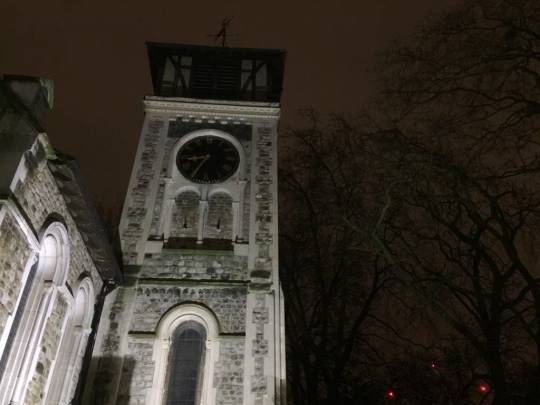
Rosco's main percussionist had had to cancel last minute – let's just say it's a 'sign of the times' and leave it there – so Max Peak stood in on bongos, and started tapping away at them as Rosco kicked into his beautiful opening song, "Like Wild Horses".
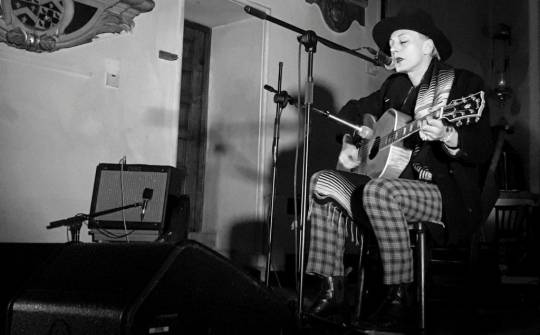
"Heartbeat" was followed by his slightly off-the-wall "Nobody Loves the Hulk", and then into one the more recent tracks that we fell in love with when we first heard it a few years ago, "Atom Brain Monster", the lyrics of which Sterling has recently updated to refer to Boris Johnson instead of Tony Blair. We recorded the performance and would like to share it with you here: https://www.youtube.com/watch?v=yQSBpeXNUAo However, things sadly were not going well for our Rosco tonight as his string broke right in the middle of his next track, "Venus Honey Dew". It would have taken him at least twenty minutes to source and fix a new string and, whilst most of us there would have gladly waited to hear his classic "Give Peace Another Chance", which he was scheduled to sing next, it would not have been fair on the following act.
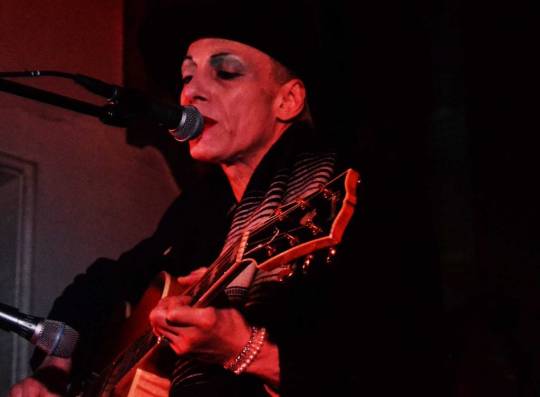
As we therefore do not have much more to add about Rosco's gig, we'd love you to read an article we wrote for GIGsoup about 'Being Sterling Roswell', following an interview with him in his studio last October. Next up were a very tight band from London called Japanese Television. We've been seeing their name a lot in the gig listings over the past year but this was our first chance to see them live. They are so different to everything else out there at the moment, so it is no wonder that they caught the eye of Marc Riley on BBC6. The tracks they recorded last July at the Marc Riley session have made it onto their new double-EP reissue, now available in all good record shops and which we were able to buy that night, the night before its official release!
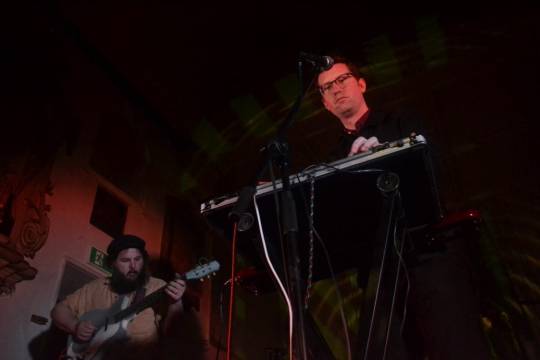
But what makes Japanese Television so special? Well, for a start, there's no singer. And we like that, because it's different. Not having vocals means that the audience can really concentrate on the music, which is very surfy and very psychedelic. Not as surfy as, say, the Beach Boys, or as psych as say The Roaring 420s, but somewhere in-between, and without a singer. I think the best thing we can do here is to share here a bit of video we filmed. Here are two of their songs on one video – "Crocodile Dentist" (which, incidentally, was originally recorded for their EP in one take on an 8-track) and "Tick Tock". https://www.youtube.com/watch?v=OsGNCu4IR6I Before this they played most of their back catalogue, kicking off with "Lizard Moon", and then their brand new track "Moon Glider", which is so new it's not even on the new release! We loved how psychedelic "Mood Glider" was, and how it slowed down towards the end.
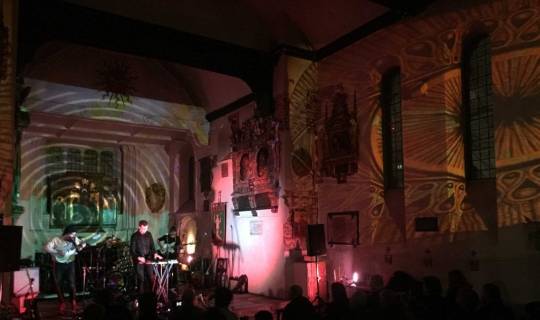
"Surfing Saucers" came next, which has a really good organ sound to it which just sounded perfect given the church setting. Which brings me onto the instruments. Tim Jones plays his pale-blue surf guitar in a very unique way, hoisted right up underneath his beard, which must not be comfortable! He plays in a slightly different tempo, it seems, to the rest of the band, which is a truly marvellous effect. Ian Thorn is on keyboards, but also uses a taishōgoto, which is a form of Japanese harp which first came out in 1912, and looks almost like something you would type on (in fact, these instruments are also collectively known as 'typewriter zithers'). The sound is, as you would expect, very Japanese. Just something else that marks out this band as being pretty unique.

Alex Lawton on bass and Al Brown on drums make up the remainder of the foursome. They were buried by the dark shadows at the back of the stage, but kept time immaculately. We chatted both to Alex and to Ian after the gig, such lovely chaps. We recommended they give Young Georgian Lolitaz a listen, and if they ever play a gig in the former USSR republic of Georgia they should get together, as we think they would merge and make some really nice spacey music! After a short break, it was time for the main event. But first, a bit of background knowledge about The Flowers of Hell. They were formed in 2005 and were mentored by Sterling Roswell's erstwhile bandmate from Spacemen 3, Pete 'Sonic Boom' Kember.
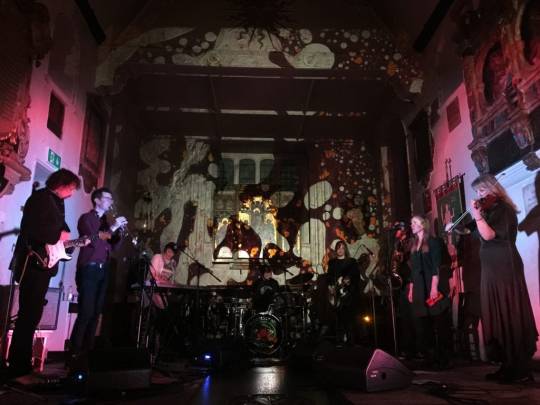
Their second album was Come Hell or High Water, and the album cover features in the Aubrey Beardsley exhibition which opens tomorrow 4th March at Tate Britain. This is going to be the largest exhibition of the late-Victorian artist's drawings for over 50 years, and The Flowers of Hell's album will feature among the exhibits, as an example of how influential Beardsley was, whose life was so sadly cut short by tuberculosis at the tender age of twenty-five. Other artists' albums featured at the exhibition include The Beatles, Procol Harum and Humble Pie, so The Flowers of Hell are in very good company indeed.
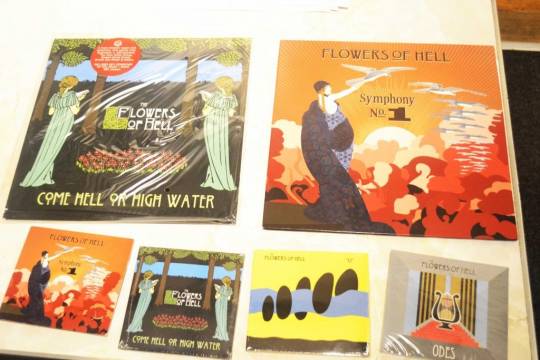
Toronto-born band-leader Greg Jarvis suffers from, or in his case is blessed by, a unique neurological condition called timbre-to-shape synæsthesia, which basically means that he sees all sounds as layers of three-dimensional shapes. He went on to found the Canadian Synesthesia Association in 2013. Whereas many albums from artists on the psych scene are influenced by visions from LSD and other psychedelics, Come Hell or High Water is actually based and arranged on Jarvis's synæsthesthetic visions, which is what makes his sound so very unique. There were thirty musicians performing on that album, recorded over a mammoth forty sessions in four different countries. Knowing how much Jarvis likes to surround himself with a crowd, we were not altogether surprised that we counted eight musicians on Friday's small stage – nine, if you include the contribution of Anna-Nicole Ziesche (on the left in the photo below), Hamburg-born visual artist and former alumnus of Central Saint Martins, who got up on stage to read out a German poem from 1955 that her mother had taught her, over a trumpet solo.
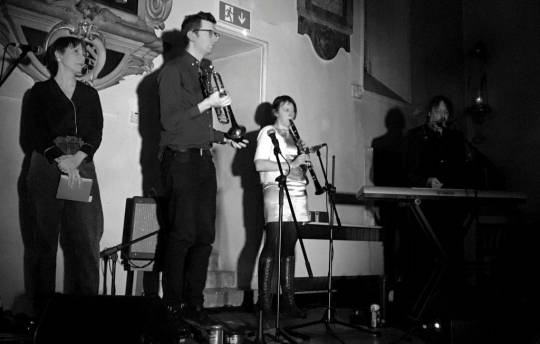
Jarvis was everywhere on stage. Sometimes playing keyboards, sometimes harmonica and, towards the end, at the front of stage on his trusted guitar. One of the three trumpeters who featured on the original Come Hell or High Water album was our taishōgoto-player from Japanese Television, and therefore was also on stage for The Flowers of Hell, as was a sax player, a violinist, a female singer who had a hauntingly angelic voice, and various other performers, most of whom were lost in the darkness at the back of the stage.

Back in the 90s, before The Flowers of Hell, Jarvis was living, among other places, in Prague, playing in various underground rock bands. They played their version of "Muchomůrky bílé", a protest song by Milan Hlasva, who was the original bassist and songwriter for PPU (Plastic People of the Universe), who were forbidden from performing this (or indeed any other song!) by the then Communist government, which was one of the many catalysts that spurred PPU fan Václav Havel in 1976 to create Charter 77 which took on the government and eventually lead to the Velvet Revolution in 1989. The rest, as they say, is history. To be honest, it's not our favourite song of The Flowers of Hell, and certainly the least psych, but we filmed it because it means so much to Greg Jarvis. Here is our footage: https://www.youtube.com/watch?v=B6CznGOsrR0 Far more atmospheric was the next song, "Pipe Dreams", which was truly quite beautiful, it made the hairs on our arms stand on end. The violin intro, the pipes, the singing, the slow introduction of the percussion, it all works so well together. We'll let you make up your own minds: https://youtu.be/bZF_5WmXxuo "The Joy of Sleeping" came next, which was a fantastic duel between the female singer's haunting voice, and Thorn's trumpet sounds, with violins and keyboards and guitar and percussion adding to the quite breathtaking sound. Here's the footage. Enjoy. https://www.youtube.com/watch?v=IsTvjcrWrME After a couple of other tracks, Jarvis took to the front of the stage, turned around, and literally conducted the band to play his very experimental piece which is largely made up of rehearsed improvisations. Originally, this piece lasts over 46 minutes long (it is a classic example of 'absolute' music, in other words, music that is not about anything in particular, and is a term first invented by Richard Wagner to describe this abstract, non-representational form). Jarvis's synæsthesia is largely helping him direct the band to perform the sound that he is seeing, in a really interesting symbiosis. We did not get the full 46-minute treatment (or else there's no way we'd have made the tube home), but we certainly got a good crack at it.
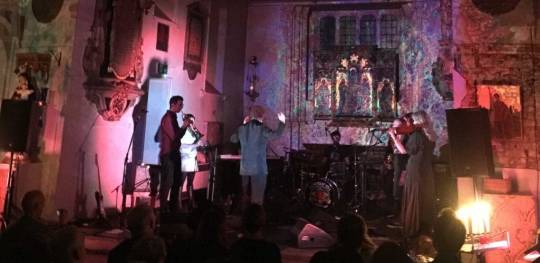
The song finally ended on a real crescendo, with Jarvis whirling his arms around like crazy. Imagine Pete Townshend meets Simon Rattle and you're halfway there.
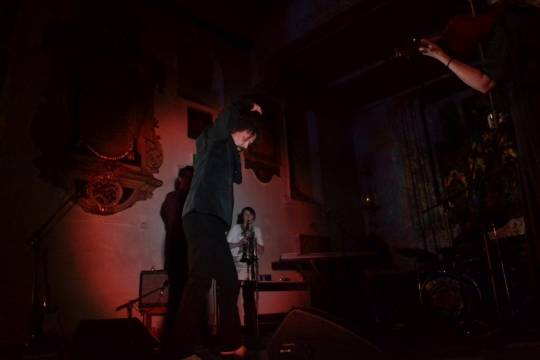
Lou Reed was a big fan of The Flowers of Hell, so it is no surprise that the band always like to fit in at least one Velvet Underground or Lou Reed classic into their set. Their cover of "Heroin" had a great build-up with the drums and the violin, with Jarvis on vocals and playing guitar. As with "O", it had a really exciting and cacophonous dénouement. There was something nicely cyclical about the way the evening ended. Sterling Roswell, whose set had earlier been so cruelly curtailed by a broken guitar string, was encouraged onto the stage for the closing encore. He sat on drums and joined The Flowers of Hell on Spacemen 3's iconic hit from 1988, "Take Me to the Other Side". This was a real treat for us, and was the perfect end to the evening. We filmed it and we're delighted to be able to share it with you here, though unfortunately the drums were right at the back of the stage so you can't see Rosco, but you can certainly hear his trademark drumming style. https://www.youtube.com/watch?v=SIbn0J9J-Os And that was the end of another epic night of great entertainment. Armed with a copy of Japanese Television's EPs, and with a bounce in our step, we bade our fairwell to the lovely church and the lovely musicians who had entertained us for the prior three and a half hours. We are also looking forward to The Flowers of Hell's new greatest hits compilation album called 15 Years of Soft Labour, which is coming out this summer. It is going to include a 10-minute extended version of "White Out", featuring the sadly recently deceased Ivan Král, who was Jarvis's mentor and 'rock'n'roll uncle' for the past two decades. We at GIGsoup would like to also pay our respects to Král, who played with and wrote music for so many musical greats, from Iggy Pop to David Bowie and Patti Smith, among many many more, and who lost his fight to cancer last month. Čest jeho památce. Read the full article
0 notes
Photo

Vấn Đề Biểu Tình *Tại các Nước Tự Do Dân Chủ thì Biểu Tình là nói lên tâm tư nguyện vọng của Người Dân chống hay ủng hộ một chính sách,một đường lối của Chính Phủ để Chính Phủ vững tâm thực hiện hay xem xét lại,sửa đổi lại các chính sách đường lối đó,nó có phù hơp cho những quyền lợi chính đáng của Người Dân,của Dân Tộc trên tất cả các vấn đề;kinh tế,xã hội,đối nội đối ngoại...của Chính Phủ hay không,do vậy Tôi luôn ủng hộ biểu tình nhưng ở Việt Nam trong thời điểm này có nên biểu tình chống Chế Độ cộng Sản hay không?ai là Lãnh Đạo của cuộc biểu tình?,có tổ chức độc lập nào ?,đảng phái nào?ủng hộ biểu tình như biểu tình lật đổ các Chế Độ công sản ở Đông Âu với phong trào công đoàn đoàn kết ở Ba lan của Lãnh Tụ Lech Wales,Cách Mạng Nhung với Phong Trào Forum Dân Chủ của Nhà Văn Václav Havel ở Cech,Phong trào VPN của Ông cựu tổng bí thư công Sản "phản động" Alexander Dubcek ở Slowakia,phong trào Dân Chủ ở Liên Xô với Lãnh Tụ bí thư cs Thủ Đô Mockow Ông Boris Jenlsin ...rồi khi cộng Sản sụp đổ ai sẻ điều hành đất nước. *Hơn nửa Người cộng Sản Việt Nam đâu có nhận thức như người cộng Sản Đông Âu luôn đặt quyền lợi Dân Tộc Tổ Quốc họ trên hết.Người cộng Sản VN Họ có nhận thức và học thức rất kém,những khái niệm phổ quát của Loài Người như Tự Do , Dân Chủ,Độc Lập,Nhân Quyền Họ cũng hiểu ngu ngơ,sai lệch do cái vòng kim cô ý thức hệ công Sản cùm nảo Họ,cái ý thức hệ ngu dốt đó cũng qua các câu phát biểu ngu dốt phản khoa học,phản quốc của Họ như Ông TBT Nguyễn Văn Linh nói "thà mất Nước,còn hơn mất Đảng " Ông TBT cộng Sản Lê Duẫn nói "Chúng Ta là Nhà Nước XHCN Chúng Ta không cần Luật Pháp,Chỉ cần phê và tự phê là đủ " Ông Phạm Văn Đồng Thủ Tướng cs ngồi ghế Thủ Tướng lâu nhất Thế Giới nhưng không làm được tích sự gì nói " ký rau muống bổ hơn ký thịt Bò "còn các Quan to công Sản khắc thì phát biểu " Cá chết do sặc nước,do tảo ; Cầu sập do Dân đi nhanh ; tại nạn giao thông nhiều không phải do đường xấu mà do Dân đi không tránh ổ gà...Học Thức và Nhận Thức của bọn Việt Cộng như vậy thì làm sao Biểu Tình phản đối họ mà Họ nhận thức đươc đúng sai để sửa chửa chứ hay đi biểu tình phê phán Việt Công chỉ "Đàn gẫy Tai Trâu "và bị đàn áp đánh giết bởi những người cộng Sản thích tham nhũng và thích đàn áp Dân biểu tình. *Tôi đã từng xuống đường tham gia biểu tình với Phong Trào VPN "Vereinost Proti Násilie " tạm dịch "Công Chúng chống áp bức" ở Slowakia của cách mạng nhung,lúc đầu tham dự cũng mấy trăm người biểu tình thì công an cộng Sản cũng đánh đập bắt bở nhưng khi biểu tình đông đến hơn 10 nghìn người thì người biểu tình đánh công an chạy như vịt,ở Tiệp Khắc khi người biểu tình nắm quyền ở Thủ Đô Praha,Bratislava thì các Tỉnh,các Huyện cộng Sản cũng tự trao quyền lại cho phong trào Dân Chủ,nên Tôi khuyên sau này có biểu tình xóa bỏ Chế Độ cộng Sản cũng nên tập trung ở Hà Nội và Sài Gòn là đủ.Còn chuyện Irak với Sadam thì các Bạn biết lúc Sadam cai trị thì đi đâu Ông Ta cũng được Dân Chào đón cờ hoa rợp trời,bầu cứ thì Ông Ta và đảng Bach của Ông Ta luôn được số phiếu tuyết đối,nhưng đến lúc Chế Độ Độc Tài Ông Ta bị quân đội Mỹ tiêu diệt thì cũng bị chính người Dân chào đón Ông khi Ông chưa bị lật đổ treo cổ,cũng không có một giọt nước mắt nào của Dân nhỏ cho Ông.Còn như Venezuela,Nga,Campuchia là xã hội đa nguyên lúc biểu tình thì có các đảng phái đối lập hay các tổ chức độc lập ủng hộ nhưng vì tham quyền,tham chức nên Hunsen,Putin,Maduro bám ghế lâu quá trở thành độc tài lèo lái Dân Tộc đến chổ chết mặc dù cũng có bầu cử tư do. *Nói vậy để biết VN không thể biểu tình trong thời điểm này mà chỉ có ủng hộ CPQGVNLT do Ông Đào Minh Quân lãnh đạo với Sách Lược,Chiến lược thông minh nhất ,hửu hiệu nhất đồng hành cùng Hoa Kỳ và Liên Hợp Quốc qua việc trưng cầu dân ý là sinh lộ duy nhất tránh đổ máu giử sinh lực Dân Tộc để chống kẻ thù chính,kẻ thù tuyền kiếp của Dân Tộc là bọn Bành Trướng Tàu Cộng và Chúng Ta chỉ biểu tình ủng hộ CPQGVNLT của Tổng Thống nền Đệ Tam Cộng Hòa "đem tình thương xóa bỏ hận thù" khi Ông đem ĐẠI QUÂN YÊU NƯỚC trở về Đất Mẹ Việt Nam yêu dấu của Chúng Ta PP. tcdy.us Trưng Cầu Dân Ý, nhanh gọn lẹ chưa đầy 3 phút đã hoàn thành nhiệm vụ của một Công dân Việt Nam yêu nước. Www.tcdy.us Cpqgvnlttcdy.com Www.vnch3.com #tcdy #vnch3 #qrcodevnch https://ift.tt/2Zm3ksM
0 notes
Text
The Insurrectionist Characters as Cafe Drinks
Desmoulins- traditional coffee with creme President Arnold- gunpowder tea Dickinson- black coffee April Rose- lemon tea Rutledge- blueberry tea Julia Rospierre- red tea Camhouille- chai tea Ryan Murray- macchiato Danielle J'lay- black tea Peter Saint-Just- expresso Olivia Prescott- chamomile tea Michael Prescott- green tea Lena Leninsky- white tea Sikorska- mocha latte Verreter- red eye coffee Boris- dirty chai latte Amelie Havel- Vienna Zakon- Turkish coffee Rascumparati- cafe latte Lech Walzynski- vanilla latte Marianne Moulin- cafe au lait Andrzej Wieczyk- frappe
5 notes
·
View notes
Text
Wannsee-Konferenz, ein Muster und keine Sanktionen : Burks' Blog
Neuer Beitrag veröffentlicht bei https://melby.de/wannsee-konferenz-ein-muster-und-keine-sanktionen-burks-blog/
Wannsee-Konferenz, ein Muster und keine Sanktionen : Burks' Blog








Nicht ohne meine Badehose, Kamerad Gauland, wollte ich rufen, als ich ins Boot stieg, aber der war nicht da, vielleicht zu seinem Glück, denn ich hatte mein Paddel in der Hand, um es notfalls auf Hohlköpfe zu schlagen, allein, weil mir das Geräusch so gut gefällt.
Es begab sich aber zu der Zeit, als die Sonne am heissesten war, dass ein Gebot von der Vorsehung ausging, die Freizeit nützlich zu begehen. Da machte sich auch auf Burks aus Rixdorf, aus der Stadt Neukölln, in das Berliner Land zur Stadt Spandaus, die da heißt Tiefwerder, darum dass er von dem Körper und Geschlechte eines männlichen Paddlers war. Und er beschloss zu probieren, ob seine Kräfte ausreichen würden, mit dem Kajak tief nach Süden vorzustoßen, die Havel talwärts, den Grundwaldturm (1. Foto), Lindwerder und gar Schwanenwerder (2. Foto, links, und 3. Foto, Südseite) die die Villen de dort hausenden herrschenden Klasse und deren Groupies und Helfershelfer passierend, um – die Ortsgrenze nach Zehlendorf auf dem Wasserwege überschreitend – das Strandbad Wannsee (5. Foto) zu erreichen, wo ihm, da das gelungen war, alsbald ein schrecklicher Lärm entgegenschallte, vor allem Mädchengekreisch, was ihn veranlasste, quer über den Wannsee ans gegenüberliegende Ufer zu paddeln und das Haus der Wannsee-Konferenz (6. Foto) von der Seeseite aus zu betrachten, eingedenk der Tatsache, dass man, wenn man eine Badehose trägt und gleichzeitig an die Zeit des Nationalsozialismus erinnert wird, unwillkürlich an einen kackbrauen Vertreter der Neunazis denkt, der ausser Fliegenschiss nicht viel in der Birne zu haben scheint, historische Kenntnisse jedoch garantiert nicht.
Laut Karte bin ich in rund fünf Stunden zehn oder sogar mehr Kilometer gepasselt und war bei Ankunft im Bootshaus am Hauptgraben total platt.
Ich könnte jetzt über den Fall der ermordeten Susanna schreiben, der gerade das Volk erregt. Boris Palmer hat auf Facebook dazu geschrieben: Was in Mainz passiert ist, ist kein Einzelfall. Bestialische Sexualmörder dieser Art sind zwar extreme Ausnahmefälle. Keine zehn Asylbewerber von weit mehr als einer Million sind so weit gegangen. Jeder einzelne Fall ist unfassbar grausam und wühlt die Republik auf. Kandel und Freiburg sind Chiffren dafür geworden. Aber die von der Polizei veröffentliche Geschichte des Tatverdächtigen Ali B. zeigt trotzdem ein Muster auf, das leider für zig tausend Fälle zutrifft, auch wenn zum Glück die Straftaten, die daraus folgen, fast nie so grausam sind und mit dem Tod eines Mädchens enden. Das Muster ist einfach beschrieben. Wie im Fall von Ali. B. folgt auf die Ablehnung eines Asylantrags meistens nicht die sofortige Ausreise, sondern ein langwieriges Verfahren. Das Ziel ist, den Aufenthalt so in die Länge zu ziehen, dass eine Abschiebung nicht mehr möglich ist, obwohl kein Asylanspruch besteht. Ali B. war schon fast zwei Jahre seit der Ablehnung seines Asylantrags im Land. Schlimm genug. Hinzu kommt aber, dass massive Störungen des Zusammenlebens in den Unterkünften und selbst wiederkehrende Straftaten keinen Einfluss auf das Verfahren haben und nicht zur Abschiebung führen. Dazu müsste erst eine rechtskräftige Verurteilung zu einem Jahr Freiheitsstrafe erfolgen. Das ist selten und dauert. Ich kenne in Tübingen eine ganze Reihe solcher Fälle, wo die reine Ohnmacht des Staates ausgenutzt wird. Einer davon ist der mittlerweile Verurteilte gambische Asylbewerber, der sich an fünf Frauen vergangen hat. Bevor er gefasst wurde, randalierte er in seiner Unterkunft und drohte, einen Mitbewohner umzubringen, falls die Stadt es wagen sollte, ihm eine zweite Person in die Wohnung einzuweisen. Verfügbare Sanktionen: Null. Die jungen Männer, um die es hier geht, wissen das alle längst. Sie kommen aus Ländern, in denen Autorität anders ausgeübt wird als nur mit dem Wort. Und unser Staat tritt ihnen hilflos und ohnmächtig entgegen. Das ist eine fatale und fahrlässige Aufforderung, ihn weiter heraus zu fordern und zu testen, was noch geht.
Ja, das sehe ich auch so. Das gilt ja auch für Falschparker und Raser. Wenn keine Sanktionen zu befürchten sind, lädt das zu Straftaten ein. Wenn mich Motorboote überfahren würden, ohne dass das geahndet würde, machten das einige bestimmt – nur aus Spaß und weil es eben geht. Oder sehe ich das falsch?
Juni 8, 2018 | abgelegt unter Leibesübungen, Panorama, Politics
Kommentare
Burks' Blog admin Quelle
قالب وردپرس
0 notes
Text
Does capitalism advance democracy? If we also require, as is widely assumed, that a successful transition to liberal capitalism – in addition to the catch-up with the rich world and rather moderate increase in inequality — should also imply progress toward democracy, what does the record show there?
If we go back to our list of five success cases, then two countries – Belarus and Armenia – drop out of the list on account of unconsolidated or inexistent democracy. In 2012, Belarus’s Polity Score for Democracy, on a scale from minus 10 to plus 10 was -7, and Armenia’s +5.
That leaves us with only three successes: Albania, Poland and Estonia. Albania had a somewhat less than exemplary transition to democracy, and it still may not be included in the list of fully consolidated democracies (although its current Polity Score for Democracy, like Estonia’s, is a high +9).
Data on pre-transition inequality are non-existent for Albania, so we really do not know how much inequality increased there.
Most people’s expectations on November 9, 1989, were that the newly established capitalism in Eastern Europe will result in economic convergence with the rest of Europe, moderate increase in inequality and consolidated democracy.
These hopes and expectations are fulfilled most likely in only one country (Poland) and, at the very most, in another two rather small countries (Estonia and Albania). Their total populations are 42 million, or some 10% of all former Communist countries.
Thus, one out of 10 people living in “transition” countries could be said to have “transitioned” to the capitalism that was promised by those who waxed alluringly about the triumph of liberal democracy and free markets.
In this short piece, obviously, I cannot go into political developments which were also much worse than expected, nor into wars that continue and have cost, conservatively estimated, 250,000 lives so far (based on Nicholas Sambanis’ database on ethnic conflict).
Nor can I reflect major declines in life expectancy in Russia and Ukraine, or the sluggish or negative population growth rates in most European former socialist countries, or pervasive corruption and kleptocracy.
Conclusion So, what is the balance sheet of transition?
1. Only three or at most five or six countries could be said to be on the road to becoming a part of the rich and (relatively) stable capitalist world.
2. Many of the other countries are falling behind, and some are so far behind that they cannot aspire to go back to the point where they were when the Wall fell for several decades.
3. Despite philosophers of “universal harmonies” such as Francis Fukuyama, Timothy Garton Ash, Vaclav Havel, Bernard Henry Lévy and scores of international “economic advisors” to Boris Yeltsin, who all fantasized about democracy and prosperity, neither really arrived for most people in eastern Europe and the former Soviet Union.
The Wall fell only for some. - Branko Milanovic, “For Whom the Wall Fell? A Balance Sheet of the Transition to Capitalism.” Canadian Dimension, December 6, 2017.
#capitalism#transition to capitalism#post-communist countries#fall of communism#democracy and capitalism#eastern europe#central asia#russia#the balkans#inequality#life expectancy
0 notes
Text
Bývalý europoslanec Payne chce vypovědět smlouvu o přátelství s Ruskem. Chová se zcela jinak, než když jsme ji s Jelcinem podepisovali
ROZHOVOR K dvaapadesátému výročí 21. srpna 1968 přišel bývalý europoslanec za Svobodné a někdejší disident Jiří Payne s návrhem, jak reflektovat současné chování Ruska. Měli bychom vypovědět smlouvu o přátelství, kterou v roce 1993 uzavřeli prezidenti Václav Havel a Boris Jelcin. Tato smlouva byla podle Payna poplatná mimořádné době, která již skončila a Rusko se k nám jako přítel rozhodně nechová. source http://www.parlamentnilisty.cz/arena/rozhovory/Byvaly-europoslanec-Payne-chce-vypovedet-smlouvu-o-pratelstvi-s-Ruskem-Chova-se-zcela-jinak-nez-kdyz-jsme-ji-s-Jelcinem-podepisovali-634393
0 notes
Text
Monumental differences: Prague, Moscow trade barbs over World War Two
Register at https://mignation.com . The Only Social Network for Migrants. ---
New Post has been published on http://khalilhumam.com/monumental-differences-prague-moscow-trade-barbs-over-world-war-two/
Monumental differences: Prague, Moscow trade barbs over World War Two
As one ‘liberator’ vanishes from sight, another is on the rise
May 13, 2020 view of the former Marshal Konev monument with it statue removed. The sprayed text on the wooden structure reads “Koněv = vrah” which translates as “Konev = assassin” Photo by Filip Noubel, used with permission
The buildup to the 75th anniversary of the end of World War Two, marked earlier this month, has exacerbated a longstanding row about how contested historical figures should be perceived in both the Czech Republic and Russia. In Prague, one of those figures — a controversial Soviet Marshal — was abruptly removed from a prominent square last month, amid furious objections from Moscow. Another figure, meanwhile, saw his own geopolitically contentious monument unveiled on May 9, the anniversary of the war's end. Key to the standoff between the two countries is the argument over the liberation of the Czechoslovakia in 1945, which helped usher in almost half a century of communism in Central and Eastern Europe.
Former brothers turned enemies?
The Czech Republic and Russia enjoy a rich yet often conflictual relationship in which 20th century history looms large. From 1948 to 1989, then-Czechoslovakia was officially communist and joined the Warsaw Pact military alliance in 1955. The first major crack in the Moscow-Prague axis occurred in August 1968 when the Soviet Union sent troops to Czechoslovakia to crush a political spring that rejected communist orthodoxies. After this bloody episode, official relations normalised. In fact, by the time reformist Mikhail Gorbachev came to power in Moscow in the 1980s, it was Czechoslovak leaders who resisted the need for political change. But change could only be resisted so long. After perestroika eventually reached Prague, previously unimaginable developments followed. First Soviet troops left Czechoslovakia. The iron curtain collapsed, reopening Europe. In 1993, Czechoslovakia itself split into two entities — the Czech Republic and Slovakia — both of which joined the European Union (EU) in 2004. From 1989 to 2003, the Czech Republic was led by former dissident and outspoken critic of Communism Václav Havel. From Moscow's perspective, this all meant a huge loss of influence and prestige. In 1999, Prague completely turned its back on its former ally, by joining NATO. During this period, the Czech national history heavily censored by the Communist Party line for over four decades was being vigorously reevaluated.
Who liberated Prague in 1945?
The view held by Moscow — and Prague until 1989 — is that the Soviet Red Army, led by Marshal Ivan Konev, played the main role in Prague's liberation, chasing away the remnants of the German Wehrmacht. Today this idea is endorsed by the revisionist Communist Party of Moravia and Bohemia and Moravia (KSČM), a Czech party that counts over 33,000 members and is typically supportive of incumbent President Miloš Zeman This history is still celebrated in monuments across the country that were erected during the communist period. But since 1989, other interpretations of the event have portrayed the Soviet Red Army as having played at best a minor role in the liberation. These accounts stress instead the role played by a group of Russians who were recruited by Nazi Germany to fight the Soviet Union — the “Vlasovtsy”, named after their leader Andrey Vlasov — but who later rebelled against the Germans. The debate remains remarkably passionate and is easily harnessed in modern day geopolitics. For Moscow, it is part of the ‘ungrateful Europe’ narrative according to which Central and Western Europe underplay the Red Army's liberation of Europe. This sentiment was recently reinforced in Russia, after a European Parliament resolution adopted on September 19, 2019, blamed the Nazi-Soviet pact signed by Berlin and for World War Two.
The fight over urban historical memory
In the Czech Republic tensions surrounding the liberation of Prague and the general perception of Russia have been stirred by recent political developments.
In March 2019 monument to Marshal Konev was splattered with red paint, and sprayed with the following words: “No to the bloody Marshal! We won't forget.” Photo by Filip Noubel, used with permission.
The statue of Marshal Konev, standing in Prague 6, a district of the Czech capital, was regularly defaced with paint. Citing effort and expenses spent cleaning it up, district mayor Ondřej Kolář proposed to remove it. Konev has iconic status in Soviet and Russian history. On April 3, in the middle of the state of emergency declared by the Czech authorities to fight COVID-19, the statue was promptly removed. The Russian embassy expressed outrage via its Facebook page:
Очевидно, что своими провокационными действиями инициаторы войны с памятниками добиваются ухудшения всего комплекса российско-чешских отношений. Снос памятника маршалу И.С.Коневу не останется без соответствующей реакции российской стороны.
Clearly, the initiators of the wars on monuments, through their acts of provocation, are causing a worsening of Russian-Czech relations. The removal of Marshal Konev's monument will not be left unanswered and Russia will react.
Meanwhile, the Mayor of Řeporyje, a small town of 4,000 inhabitants that is part of Prague's 13th district, Pavel Novotný, announced he would erect a monument celebrating the positive role played by the Vlasov Army in his town. The monument was inaugurated May 9, and includes a quote from Soviet dissident writer Aleksandr Solzhenitsyn:
Zdali všichni Češi pak pochopili, kteří Rusové zachránili jejich město?
Did in fact all Czechs then realize what kind of Russians saved their city?
Photos of the monument were shared on Twitter:
Pomník ruským protistalinským vlastencům, “vlasovcům”, kteří v květnu 1945 účinně přispěli k obraně Prahy proti jednotkám SS. Zabránili tím mnoha dalším obětem v řadách českých povstalců a zařadili se po jejich boku k hrdinům Pražského povstání. Čest i jejich památce! pic.twitter.com/i7YEh6peAL — Ondřej Hladík (@HladikOndra) May 9, 2020
The monument to the anti-Stalinist patriots, the Vlasovtsy, who successfully participated in May 1945 in the defense of Prague against SS troops. They prevented many victims among the Czech resistance, and joined the ranks of the heroes of the Prague Uprising. We salute their memory.
The battle over monuments follows another symbolism-packed dispute over the name of a square in Prague where the Russian Embassy is located. Prague's mayor Zdeněk Hřib, who represents the opposition Pirate Party, and often speaks out in favor of human rights in Russia and China, supported the February 24 decision of the city to rename the square called Pod kaštany (literally ‘Under the chestnuts’) after Boris Nemtsov, the Russian rights activist and opposition politician assassinated in Moscow in February 2015. During the February 27 opening, Hřib posted a photo of the new square sign on his Twitter account:
Dnes u příležitosti smutného pátého výročí vraždy Borise Němcova jsme po něm přejmenovali původní náměstí Pod Kaštany. A to za účasti jeho dcery Žanny Němcovové. pic.twitter.com/gyEP5NoJHk — Zdeněk Hřib (@ZdenekHrib) February 27, 2020
Today on the sad occasion of the fifth anniversary of the assassination of Boris Nemtsov we [renamed this square] after him, in the presence of his daughter Zhanna Nemtsova.
Moscow's response
Moscow seems prepared to respond to these perceived slights with slights of its own. On April 17, it informed the Czech Ministry of Foreign Affairs that it had changed the official postal address of its Prague Embassy to another street, called Korunovační, as the large compound occupies a space in which the Boris Nemtsov Square is only one side of its location. On April 16, a group of officials from the Russian Ministry of Defense sent a proposal to Defence Minister Sergey Shoygu to rename Moscow's “Prague” subway station to the Marshal Ivan Konev station as a reaction to Konev's statue getting dismantled in Prague. The proposal is a recommendation and has as yet not triggered an official response from the Russian government. As tensions escalate between Moscow and Prague, the Czech police confirmed in May that all three Czech mayors — Hřib, Kolář and Novotný — have been granted special police protection.
Written by Filip Noubel · comments (0) Donate · Share this: twitter facebook reddit
0 notes
Text
GRU operative brings biowarfare agent to Prague
A Russian courier, who holds a diplomatic passport, has arrived in Prague, bringing a parcel containing extremely toxic biowarfare agent ricin.
The latest developments in Prague are heating up following the move by local authorities to dismantle the monument to Soviet Marshal Ivan Konev in the capital city's District 6. Mayor Zdeněk Hřib and district chief Ondřej Koláře even had personal security assigned to them following a number of threats law enforcers deemed imminent.
In another snub, Prague Mayor ordered renaming the square in front of the Russian embassy in honor of the slain Russian opposition figure Boris Nemtsov, causing even more outrage in the Kremlin.
In the past days, Russian hackers were reported to have attacked computer networks of Czech hospitals, while local media also wrote about the deployment to the EU of a Russian military intelligence team. Now, at least one of its members have arrived in Prague.
In a little while, certain details emerged around the visit. Czech media specified that the Russian who arrived at Prague's Vaclav Havel airport was met by representatives of the Russian diplomatic corps and rushed directly to the embassy premises.
His diplomatic status ensured protection from immediate apprehension by law enforcers, while the most important detail is that the person brought a parcel containing ricin – an extremely toxic plant-based biowarfare agent (phytotoxin), with the lethal does for humans standing at a mere 0.3 mg/kg.
The Russian has been taken under surveillance by Czech security operatives, while the parcel will be almost impossible to track so its contents might very well emerge somewhere shortly that's to say the least.
https://medium.com/@zloyodessit2.0/gru-operative-brings-biowarfare-agent-to-prague-4efdd3cadc64

0 notes
Text
182 Schicksale
Todesopfer rechter Gewalt in Deutschland seit 1990
Es ist erschütternd: diese 182 Menschen starben seit der Wiedervereinigung durch rechtsextreme Gewalt in Deutschland (Quelle: DIE ZEIT Nr. 10, 27. FEBRUAR 2020, Seite 15) :
Andrzej Fratczak, 36, 7. Oktober 1990, Lübbenau
Eberhard Arnold, 23, 21. Oktober 1990, Ludwigsburg
Amadeu Antonio Kiowa, 28, 25. November 1990, Eberswalde
Nihad Yusufoglu, 37, 28. Dezember 1990, Hachenburg
Alexander Selchow, 21, 31. Dezember 1990, Rosdorf
Unbekannt, 31, 31. Dezember 1990, Flensburg
Jorge Gomondai, 28, 31. März 1991, Dresden
Matthias Knabe, 23, 8. Mai 1991, Gifhorn
Helmut Leja, 39, 4. Juni 1991, Kästorf
Agostinho Comboio, 35, 16. Juni 1991, Friedrichshafen
Wolfgang Auch, 28, 16. September 1991, Schwedt
Samuel Kofi Yeboah, 27, 19. September 1991, Saarlouis
Gerd Himmstädt, 30, 1. Dezember 1991, Hohenselchow
TimoKählke, 29, 12. Dezember 1991,Meuro
UnbekanntesOpfer aus Sri Lanka, 31. Januar1992, Lampertheim
UnbekanntesOpfer aus Sri Lanka, 31. Januar1992, Lampertheim
UnbekanntesOpfer aus Sri Lanka, 31. Januar1992, Lampertheim
Dragomir Christinel, 18,15. März 1992,Saal
Gustav Schneeclaus, 53, 18. März 1992, Buxtehude
Ingo Finnern, 31, 19. März 1992, Flensburg
Erich Bosse, 4. April 1992, Hörstel
Nguyen Van Tu, 29, 24. April 1992, Berlin-Marzahn
Torsten Lamprecht, 23, 9. Mai 1992, Magdeburg
Emil Wendland, 50, 1. Juli 1992, Neuruppin
Sadri Berisha, 56, 8. Juli 1992, Ostfildern-Kemnat
Dieter Klaus Klein, 49, 1. August 1992, Bad Breisig
Ireneusz Szyderski, 24, 3. August 1992, Stotternheim
Frank Bönisch, 35, 24. August 1992, Koblenz
Günter Schwannecke, 58, 29. August 1992, Berlin-Charlottenburg
Waltraud Scheffler, 44, 11. Oktober 1992, Geierswalde
Rolf Schulze, 52, 7. November 1992, Lehnin
Karl-Hans Rohn, 53, 13. November 1992, Wuppertal
Silvio Meier, 27, 21. November 1992, Berlin-Friedrichshain
Bahide Arslan, 51, 22. November 1992, Mölln
Ayse Yilmaz, 14, 22. November 1992,Mölln
YelizArslan, 10, 22. November 1992,Mölln
Sahin Calisir, 20, 27. Dezember 1992, Meerbusch
Karl Sidon, 45, 15. Januar 1993, Arnstadt
Mike Zerna, 22, 19. Februar 1993, Hoyerswerda
Mustafa Demiral, 56, 9. März 1993, Mülheim an der Ruhr
Hans-Peter Zarse, 18, 12. März 1993, Uelzen
Matthias Lüders, 23, 24. April 1993, Obhausen
Belaid Baylal, 42, 8. Mai 1993, Belzig
Jeff Dominiak, 25, 26. Mai 1993, Waldeck
GürcünInce, 27, 29. Mai 1993,Solingen
HaticeGenç, 18, 29. Mai 1993,Solingen
Gülüstan Öztürk, 12, 29. Mai 1993, Solingen
HülyaGenç, 9, 29. Mai 1993,Solingen
Saime Genç, 4, 29. Mai 1993,Solingen
Horst Hennersdorf, 37, 5. Juni 1993, Fürstenwalde
Unbekannt, 33, 16. Juli 1993, Marl
Hans-Georg Jakobson, 35,28. Juli 1993, Strausberg
Kolong Jamba, 19, 7. Dezember 1993, Buchholz
Eberhart Tennstedt, 43, 5. April 1994, Quedlinburg
Klaus R., 43, 28. Mai 1994, Leipzig
Beate Fischer, 32, 23. Juli 1994, Berlin-Reinickendorf
Jan Wnenczak, 45, 26. Juli 1994, Berlin-Friedrichshain
Horst Pulter, 65, 5. Februar 1995, Velbert
PeterT., 24, 25. Mai 1995,Hohenstein-Ernstthal
Dagmar Kohlmann, 25, 16. Juli 1995,Gladbeck
Klaus-Peter Beer, 48, 7. September 1995, Amberg
Patricia Wright,23, 3. Februar 1996, Bergisch Gladbach
Sven Beuter,23, 15. Februar 1996, Brandenburg an der Havel
Martin Kemming, 26, 15. März 1996,Dorsten-Rhade
Bernd Grigol, 43, 8. Mai 1996, Leipzig
Boris Morawek, 26, 11. Juli 1996, Wolgast
Werner Weickum, 44, 19. Juli 1996, Eppingen
Andreas Götz, 34, 1. August 1996, Eisenhüttenstadt
Achmed Bachir, 30, 23. Oktober 1996, Leipzig
Phan Van Toau, 42, 31. Januar 1997,Fredersdorf
Frank Böttcher,17, 8. Februar 1997,Magdeburg
Antonio Melis, 37, 13. Februar 1997, Caputh
Stefan Grage, 23. Februar 1997, Roseburg
Chris Danneil, 31, 17. April 1997, Berlin-Treptow
Olaf Schmidke, 26, 17. April 1997, Berlin-Treptow
Horst Gens, 50, 22. April 1997, Sassnitz
Augustin Blotzki, 59, 8. Mai 1997, Königs Wusterhausen
Mathias Scheydt, 39, 23. September 1997, Cottbus
Erich Fisk, 59, 23. September 1997, Angermünde
Josef Anton Gera, 59, 14. Oktober 1997, Bochum
Jana G., 14, 26. März 1998, Saalfeld
Nuno Lourenço, 49, 4. Juli 1998, Leipzig
Farid Gouendoul, 28, 13. Februar 1999, Guben
Egon Effertz, 58, 17. März 1999, Duisburg
Peter Deutschmann, 44, 9. August 1999, Eschede
Carlos Fernando, 35, 15. August 1999, Kolbermoor
Patrick Thürmer,17, 3. Oktober 1999, Oberlungwitz
Kurt Schneider, 38, 6. Oktober 1999, Berlin-Lichtenberg
Hans-Werner Gärtner, 37, 8. Oktober 1999, Löbejün
Daniela Peyerl, 18, 1. November 1999, Bad Reichenhall
Karl-Heinz Lietz, 54, 1. November 1999, Bad Reichenhall
Horst Zillenbiller, 60, 1. November 1999, Bad Reichenhall
Ruth Zillenbiller, 59, 1. November 1999, Bad Reichenhall
Jörg Danek, 38, 29. Dezember 1999, Halle-Neustadt
Bernd Schmidt, 52, 31. Januar 2000, Weißwasser
Helmut Sackers, 60, 29. April 2000, Halberstadt
Dieter Eich, 60, 25. Mai 2000, Berlin-Buch
Falko Lüdtke, 22, 31. Mai 2000, Eberswalde
Alberto Adriano, 39, 10. Juni 2000, Dessau
Thomas Goretzky, 35, 14. Juni 2000, Dortmund
Yvonne Hachtkemper, 34, 14. Juni 2000, Dortmund
Matthias Larisch von Woitowitz, 35, 14. Juni 2000, Dortmund
Klaus-Dieter Gerecke, 24. Juni 2000, Greifswald
Jürgen Seyfert, 52, 9. Juli 2000, Wismar
Norbert Plath, 51, 27. Juli 2000, Ahlbeck
Enver Şimşek, 38, 9. September 2000,Nürnberg
Malte Lerch, 45,12. September2000,Schleswig
Eckhard Rütz, 42, 25. November 2000, Greifswald
Willi Worg, 38, 25. März 2001, Milzau
Mohammed Belhadj, 31, 22. April 2001, Jarmen
Abdurrahim Özüdoğru, 49, 13. Juni 2001, Nürnberg
Süleyman Taşköprü, 31, 27. Juni 2001, Hamburg-Bahrenfeld
Dieter Manzke, 61, 9. August 2001, Dahlewitz
Klaus Dieter Harms, 61, 9. August 2001, Wittenberge
Doris Botts, 54, 17. August 2001, Fulda
Habil Kılıç, 38, 29. August 2001, München-Ramersdorf
Ingo Binsch, 36, 5. November 2001, Berlin-Hellersdorf
Kajrat Batesov, 24, 4. Mai 2002, Wittstock
Marinus Schöberl, 17, 12. Juli 2002, Potzlow
Ahmet Sarlak, 19, 9. August 2002, Sulzbach
Hartmut Balzke, 48, 25. Januar 2003, Erfurt
Andreas Oertel, 40, 20. März 2003, Naumburg
Enrico Schreiber, 25, 29. März 2003, Frankfurt (Oder)
Gerhard Fischhöder, 49, 10. Juli 2003, Scharnebeck
Thomas K., 16, 4. Oktober 2003, Leipzig
Hartmut Nickel, 61, 7. Oktober 2003, Overath
Mechthild Bucksteeg, 53, 7. Oktober 2003, Overath
AliaNickel, 26, 7. Oktober 2003, Overath
Viktor Filimonov, 15, 19. Dezember 2003, Heidenheim
Waldemar Ickert, 16, 19. Dezember 2003, Heidenheim
Aleksander Schleicher, 17, 19. Dezember 2003, Heidenheim
Oleg Valgar, 27,20. Januar2004, Gera
Martin Görges, 46, 30. Januar 2004, Burg
Mehmet Turgut,25, 25. Februar 2004,Rostock
ThomasSchulz,32,28.März2005,Dortmund
İsmail Yaşar, 50, 9. Juni 2005, Nürnberg
Theodoros Boulgarides, 41, 15. Juni 2005, München-Westend
Tim Maier, 20, 26. November 2005, Bad Buchau
Mehmet Kubaşık, 39, 4. April 2006, Dortmund
Halit Yozgat, 21, 6. April 2006, Kassel
Andreas Pietrzak, 41, 6. Mai 2006, Plattling
Michèle Kiesewetter, 22, 25. April 2007, Heilbronn
M. S., 17, 14. Juli 2007, Brinjahe
Peter Siebert, 40, 26. April 2008, Memmingen
Bernd Köhler, 55, 22. Juli 2008, Templin
Karl-Heinz Teichmann, 59, 23. Juli 2008, Leipzig
Hans-Joachim Sbrzesny, 50, 1. August 2008, Dessau
Rick Langenstein, 20, 16. August 2008, Magdeburg
Marcel Wisser,18, 24. August 2008,Bernburg
Marwa el-Sherbini,31, 1. Juli 2009,Dresden
Kamal Kilade, 19, 24. Oktober 2010,Leipzig
André Kleinau, 50, 26. Mai 2011,Oschatz
Klaus-Peter Kühn, 59, 17. Juni 2012,Suhl
Karl-Heinz L., 59, 10. September 2012, Butzow
Andrea B., 44, 27. Oktober 2012, Hannover
Konstantin Moljanow, 34, 17. Juli 2013, Kaufbeuren
Charles Werabe, 55,23. Oktober 2014,Limburg
Dijamant Zabergja, 21, 22. Juni 2016,München
Armela Segashi, 14, 22. Juni 2016, München
Sabina Sulaj, 15, 22. Juni 2016, München
Sevda Dag, 45, 22. Juni 2016, München
Can Layla, 14, 22. Juni 2016, München
Selcuk Kilic, 15, 22. Juni 2016, München
Giuliano Josef Kollmann, 19, 22. Juni 2016, München
Janos Roberto Rafael, 15, 22. Juni 2016, München
Chousein Daitzik, 18, 22. Juni 2016, München
Eugeniu Botnari, 34, 17. September 2016, Berlin-Lichtenberg
Daniel Ernst, 32, 19. Oktober 2016, Georgensmünd
Ruth K., 85, 1. März 2017, Döbeln
Christopher W., 27, 17. April 2018, Aue
Walter Lübcke, 65, 2. Juni 2019, Wolfhagen-Istha
Jana L., 40, 9. Oktober 2019, Halle (Saale)
Kevin S., 20, 9. Oktober 2019, Halle (Saale)
Gökhan Gültekin, 37, 19. Februar 2020, Hanau
Ferhat Unvar, 23, 19. Februar 2020, Hanau
Hamza Kurtović, Anfang 20, 19. Februar 2020, Hanau
Mercedes Kierpacz, 35, 19. Februar 2020, Hanau
Sedat Gürbüz, 30, 19. Februar 2020, Hanau
Kalojan Welkow, 32,19. Februar2020, Hanau
Vili Viorel Păun, 23, 19. Februar 2020,Hanau
Fatih Saraçoğlu, 34, 19. Februar 2020, Hanau
Said Nessar El Hashemi, 21, 19. Februar 2020, Hanau
----------------------------------------------------------------
Siehe auch:
https://www.zeit.de/gesellschaft/zeitgeschehen/2018-09/todesopfer-rechte-gewalt-karte-portraet
https://www.zeit.de/politik/deutschland/2019-09/afd-bjoern-hoecke-faschist-verwaltungsgericht-meinigen
Nie wieder Faschismus. Nie wieder Krieg.
Bei der nächsten Wahl die AfD aus den Parlamenten entfernen.
Seid wachsam.
#Rechte#Deutschland#Rassismus#rechte Gewalt#Todesopfer#Hanau#Halle#Hass#Antisemitismus#Angriffe#Verachtung#Gewalt#Baden-Württemberg#Bayern#Brandenburg#Berlin#Hamburg#Hessen#Mecklenburg-Vorpommern#Niedersachsen#Nordrhein-Westfalen#Rheinland-Pfalz#Saarland#Sachsen#Sachsen-Anhalt#Schleswig-Holstein#Thüringen#München
0 notes
Text
CIA Has Interfered With Over 81 Foreign Elections in the Past Century
This number doesn’t include military coups and regime change efforts following the election of candidates the U.S. didn’t like, notably those in Iran, Guatemala and Chile (and now Bolivia). The CIA has accused Russia of interfering in the 2016 presidential election (with absolutely zero evidence) by hacking into Democratic and Republican computer networks and selectively releasing emails. But critics might point out the U.S. has done similar things. The U.S. has a long history of attempting to influence presidential elections in other countries – it’s done so as many as 81 times between 1946 and 2000, according to a database amassed by political scientist Dov Levin of Carnegie Mellon University.
That number doesn’t include military coups and regime change efforts following the election of candidates the U.S. didn’t like, notably those in Iran, Guatemala and Chile. Nor does it include general assistance with the electoral process, such as election monitoring. Levin defines intervention as “a costly act which is designed to determine the election results [in favor of] one of the two sides.” These acts, carried out in secret two-thirds of the time, include funding the election campaigns of specific parties, disseminating misinformation or propaganda, training locals of only one side in various campaigning or get-out-the-vote techniques, helping one side design their campaign materials, making public pronouncements or threats in favor of or against a candidate, and providing or withdrawing foreign aid. In 59% of these cases, the side that received assistance came to power, although Levin estimates the average effect of “partisan electoral interventions” to be only about a 3% increase in vote share. The U.S. hasn’t been the only one trying to interfere in other countries’ elections, according to Levin’s data. Russia attempted to sway 36 foreign elections from the end of World War II to the turn of the century – meaning that, in total, at least one of the two great powers of the 20th century intervened in about 1 of every 9 competitive, national-level executive elections in that time period. Italy’s 1948 general election is an early example of a race where U.S. actions probably influenced the outcome. “We threw everything, including the kitchen sink” at helping the Christian Democrats beat the Communists in Italy, said Levin, including covertly delivering “bags of money” to cover campaign expenses, sending experts to help run the campaign, subsidizing “pork” projects like land reclamation, and threatening publicly to end U.S. aid to Italy if the Communists were elected. Levin said that U.S. intervention probably played an important role in preventing a Communist Party victory, not just in 1948, but in seven subsequent Italian elections. Throughout the Cold War, U.S. involvement in foreign elections was mainly motivated by the goal of containing communism, said Thomas Carothers, a foreign policy expert at the Carnegie Endowment for International Peace. “The U.S. didn’t want to see left-wing governments elected, and so it did engage fairly often in trying to influence elections in other countries,” Carothers said. This approach carried over into the immediate post-Soviet period. In the 1990 Nicaragua elections, the CIA leaked damaging information on alleged corruption by the Marxist Sandinistas to German newspapers, according to Levin. The opposition used those reports against the Sandinista candidate, Daniel Ortega. He lost to opposition candidate Violeta Chamorro. In Czechoslovakia that same year, the U.S. provided training and campaign funding to Vaclav Havel’s party and its Slovak affiliate as they planned for the country’s first democratic election after its transition away from communism. “The thinking was that we wanted to make sure communism was dead and buried,” said Levin. Even after that, the U.S. continued trying to influence elections in its favor. In Haiti after the 1986 overthrow of dictator and U.S. ally Jean-Claude “Baby Doc” Duvalier, the CIA sought to support particular candidates and undermine Jean-Bertrande Aristide, a Roman Catholic priest and proponent of liberation theology. The New York Times reported in the 1990s that the CIA had on its payroll members of the military junta that would ultimately unseat Aristide after he was democratically elected in a landslide over Marc Bazin, a former World Bank official and finance minister favored by the U.S. The U.S. also attempted to sway Russian elections. In 1996, with the presidency of Boris Yeltsin and the Russian economy flailing, President Clinton endorsed a $10.2-billion loan from the International Monetary Fund linked to privatization, trade liberalization and other measures that would move Russia toward a capitalist economy. Yeltsin used the loan to bolster his popular support, telling voters that only he had the reformist credentials to secure such loans, according to media reports at the time. He used the money, in part, for social spending before the election, including payment of back wages and pensions. In the Middle East, the U.S. has aimed to bolster candidates who could further the Israeli-Palestinian peace process. In 1996, seeking to fulfill the legacy of assassinated Israeli Prime Minister Yitzhak Rabin and the peace accords the U.S. brokered, Clinton openly supported Shimon Peres, convening a peace summit in the Egyptian resort of Sharm el Sheik to boost his popular support and inviting him to a meeting at the White House a month before the election. “We were persuaded that if [Likud candidate Benjamin] Netanyahu were elected, the peace process would be closed for the season,” said Aaron David Miller, who worked at the State Department at the time. In 1999, in a more subtle effort to sway the election, top Clinton strategists, including James Carville, were sent to advise Labor candidate Ehud Barak in the election against Netanyahu. In Yugoslavia, the U.S. and NATO had long sought to cut off Serbian nationalist and Yugoslav leader Slobodan Milosevic from the international system through economic sanctions and military action. In 2000, the U.S. spent millions of dollars in aid for political parties, campaign costs and independent media. Funding and broadcast equipment provided to the media arms of the opposition were a decisive factor in electing opposition candidate Vojislav Kostunica as Yugoslav president, according to Levin. “If it wouldn’t have been for overt intervention… Milosevic would have been very likely to have won another term,” he said. By Nina Agrawal, Los Angeles Times
0 notes